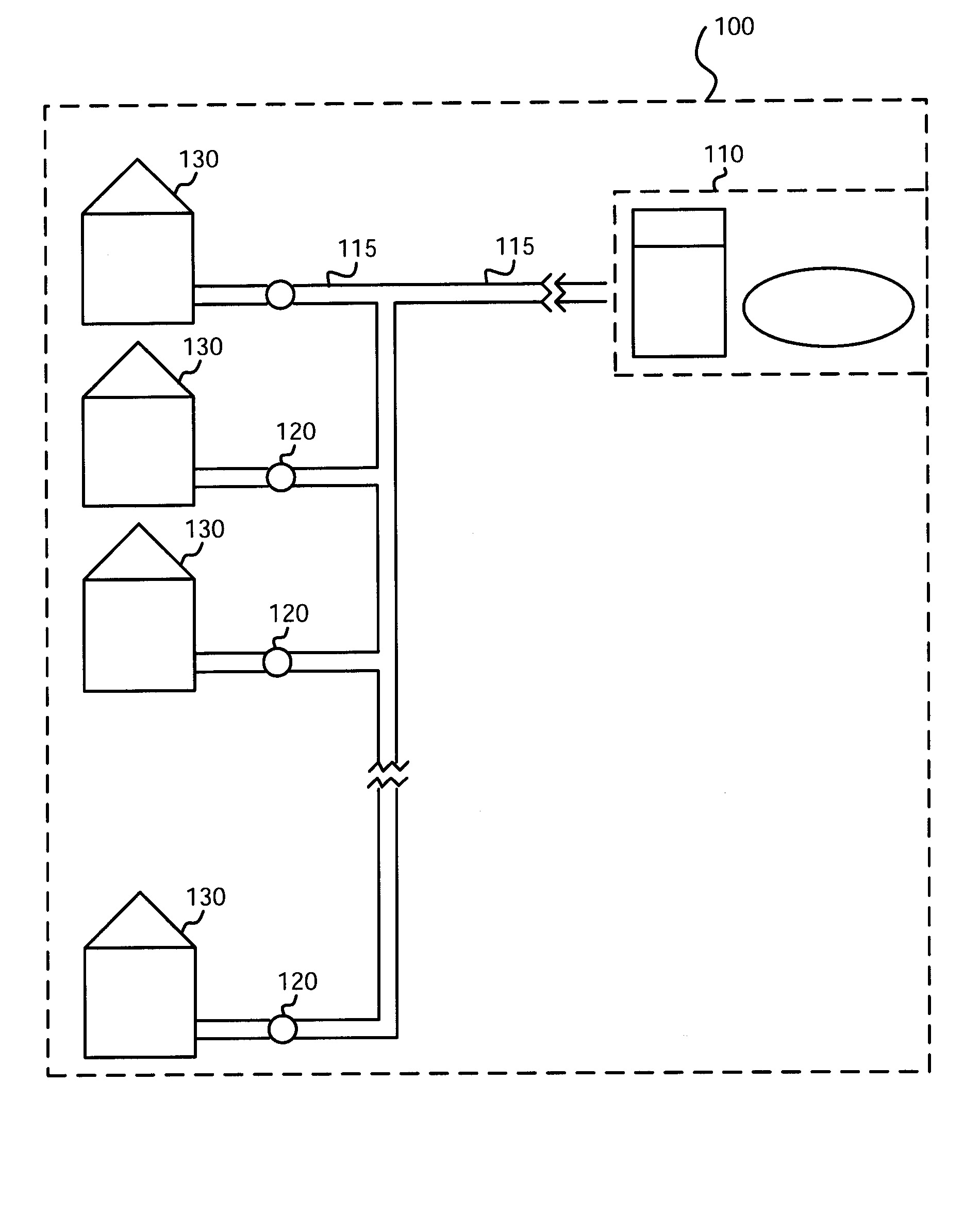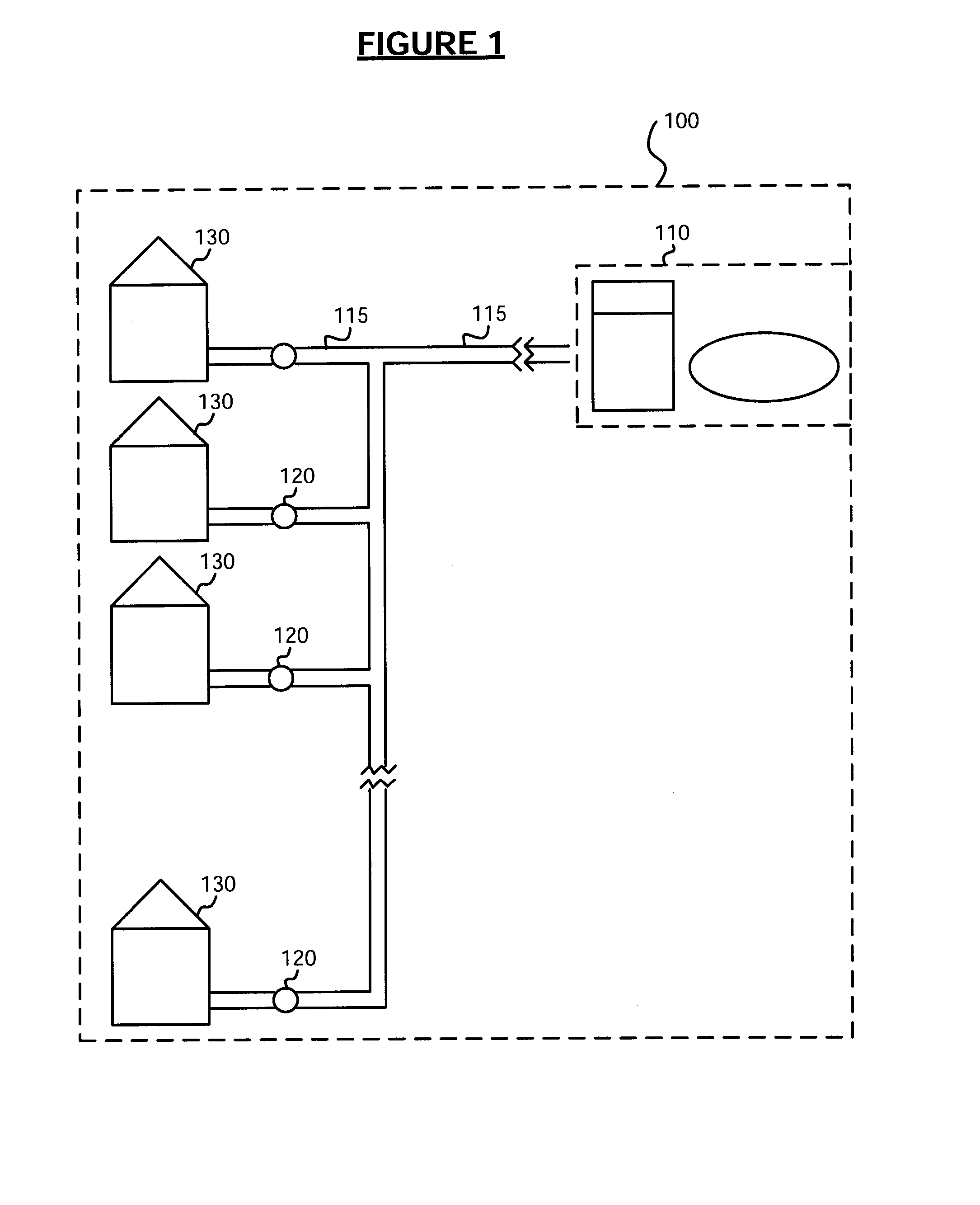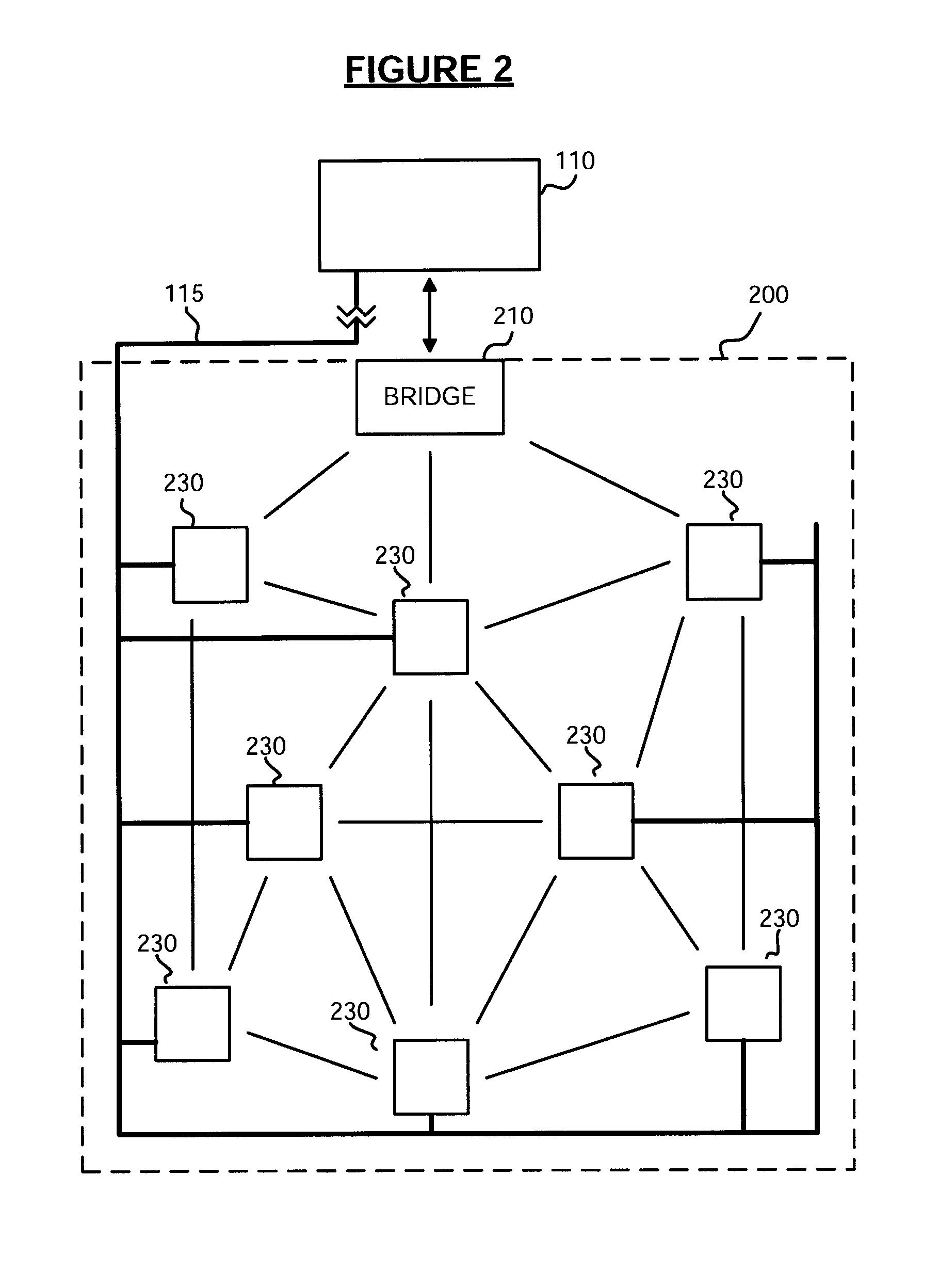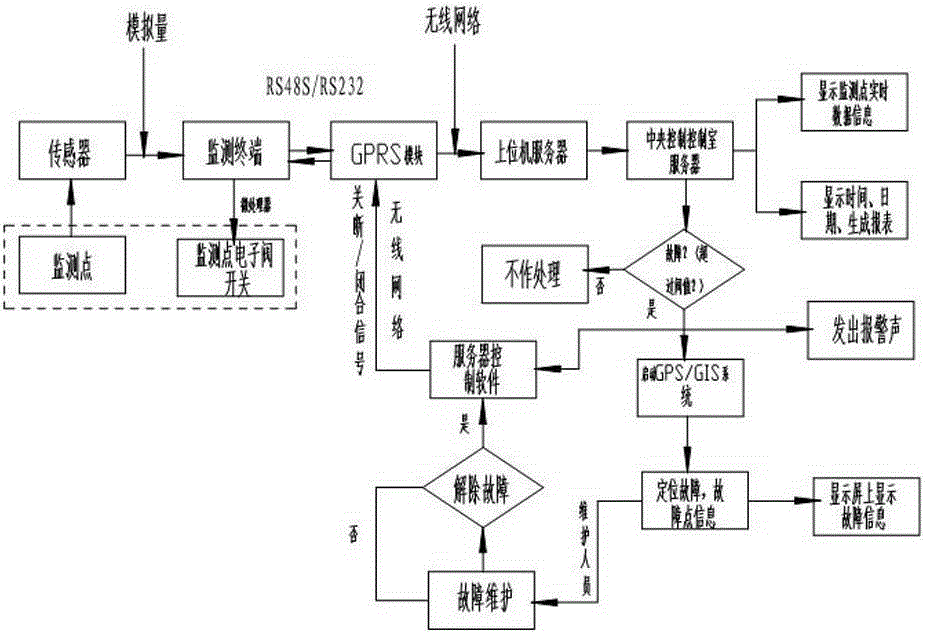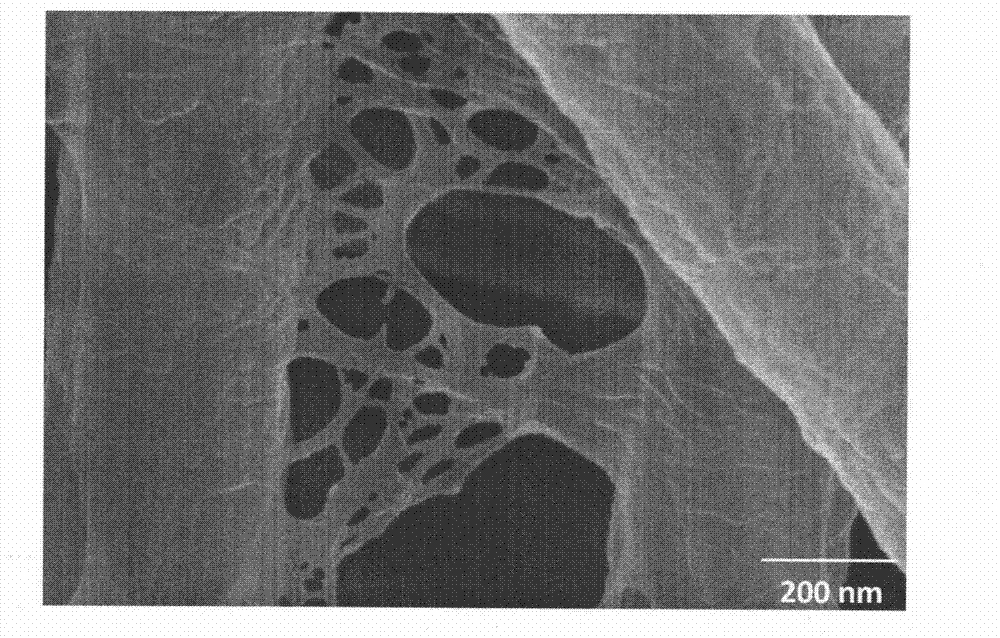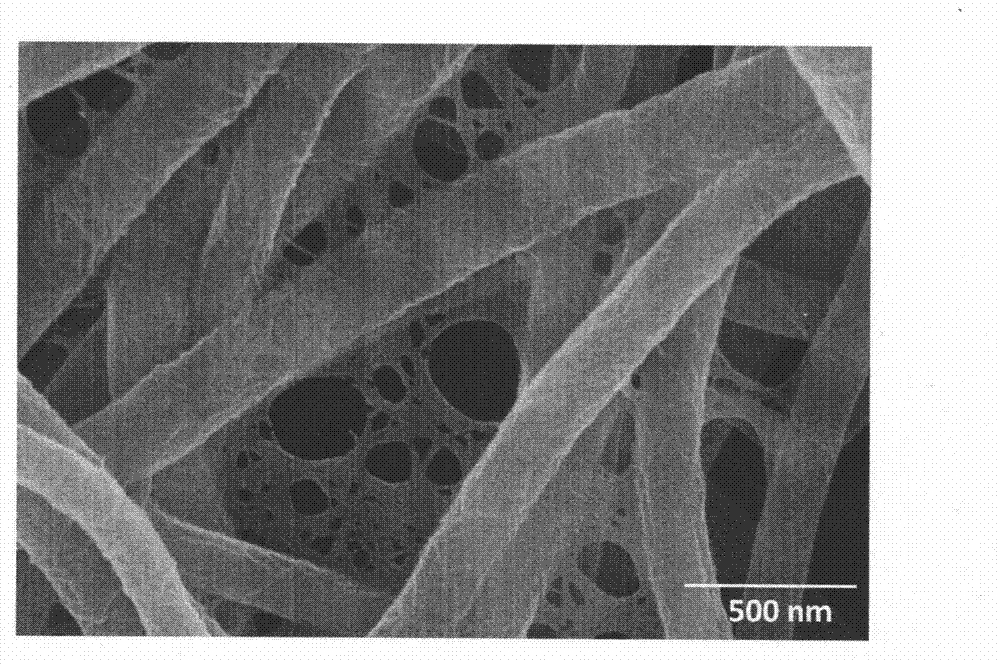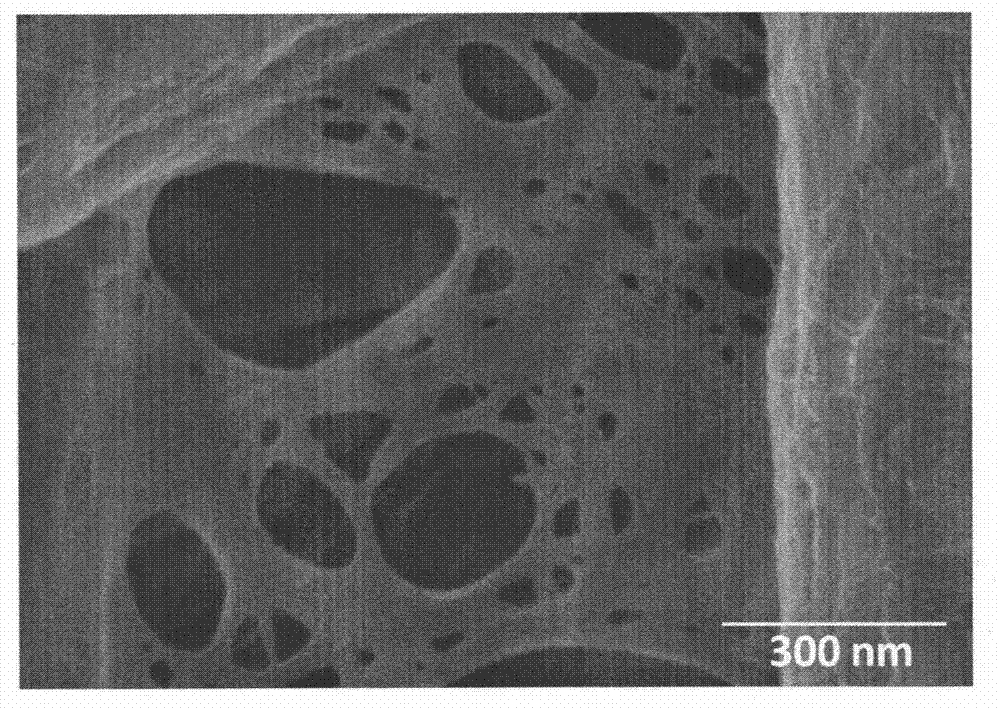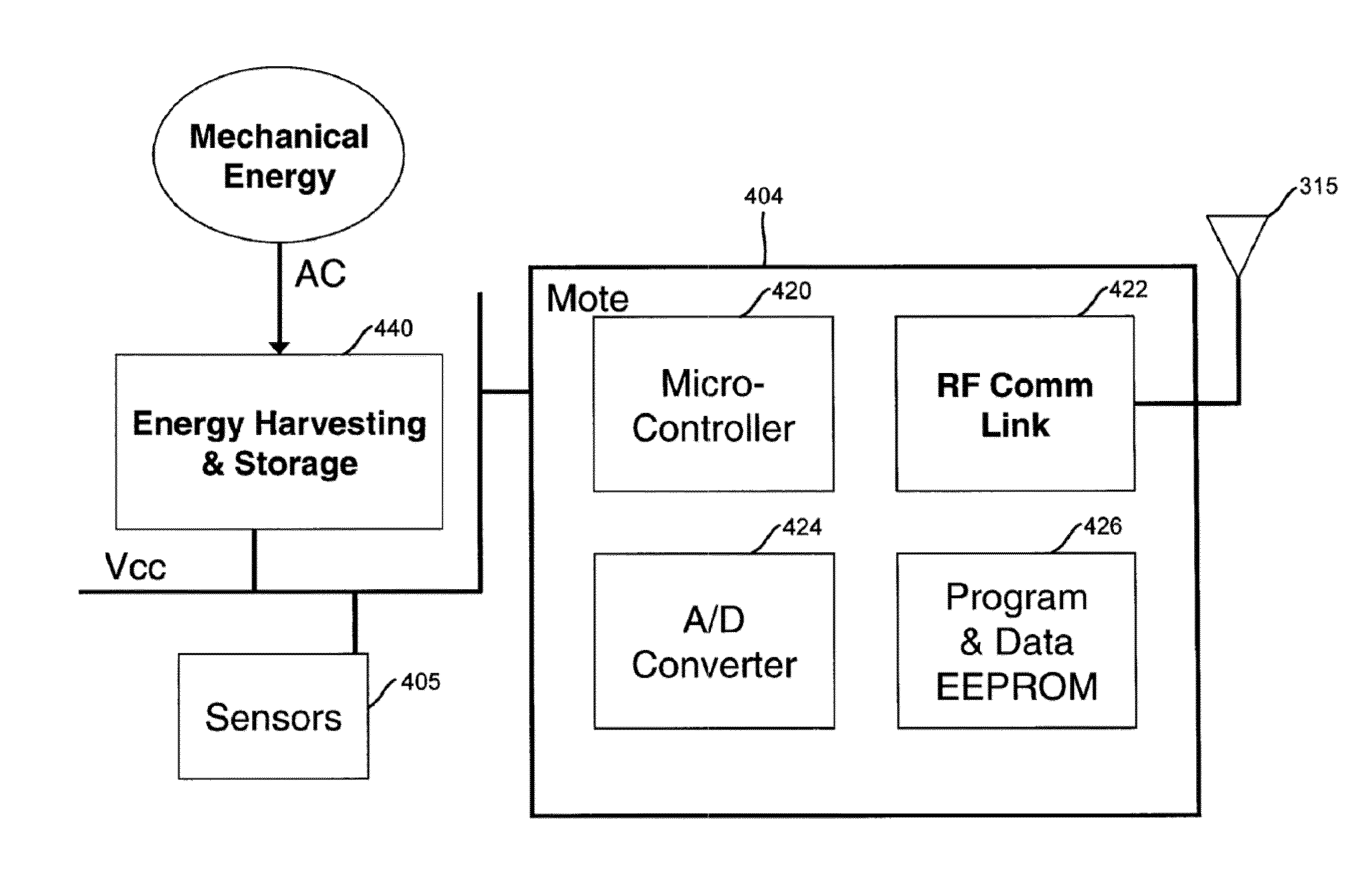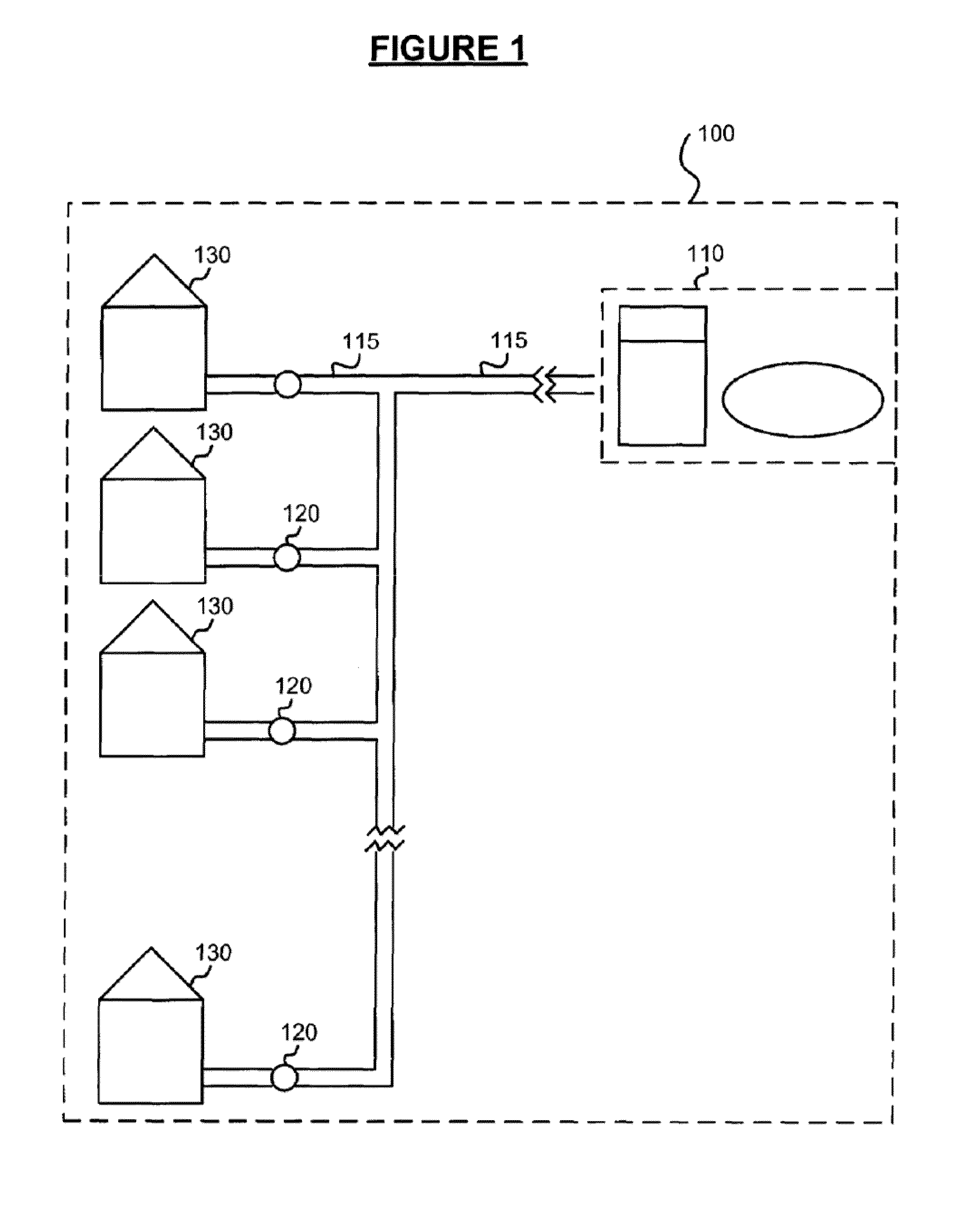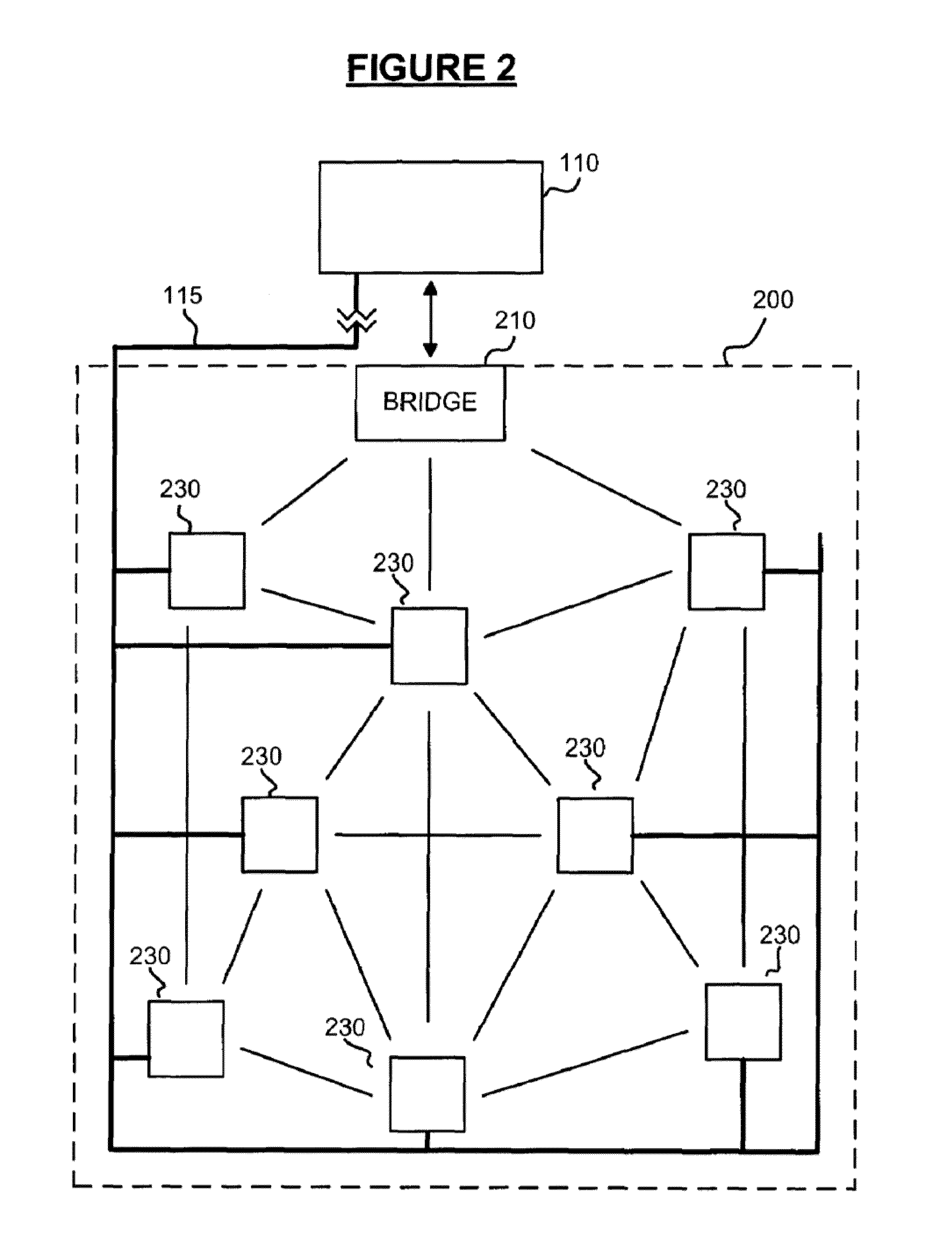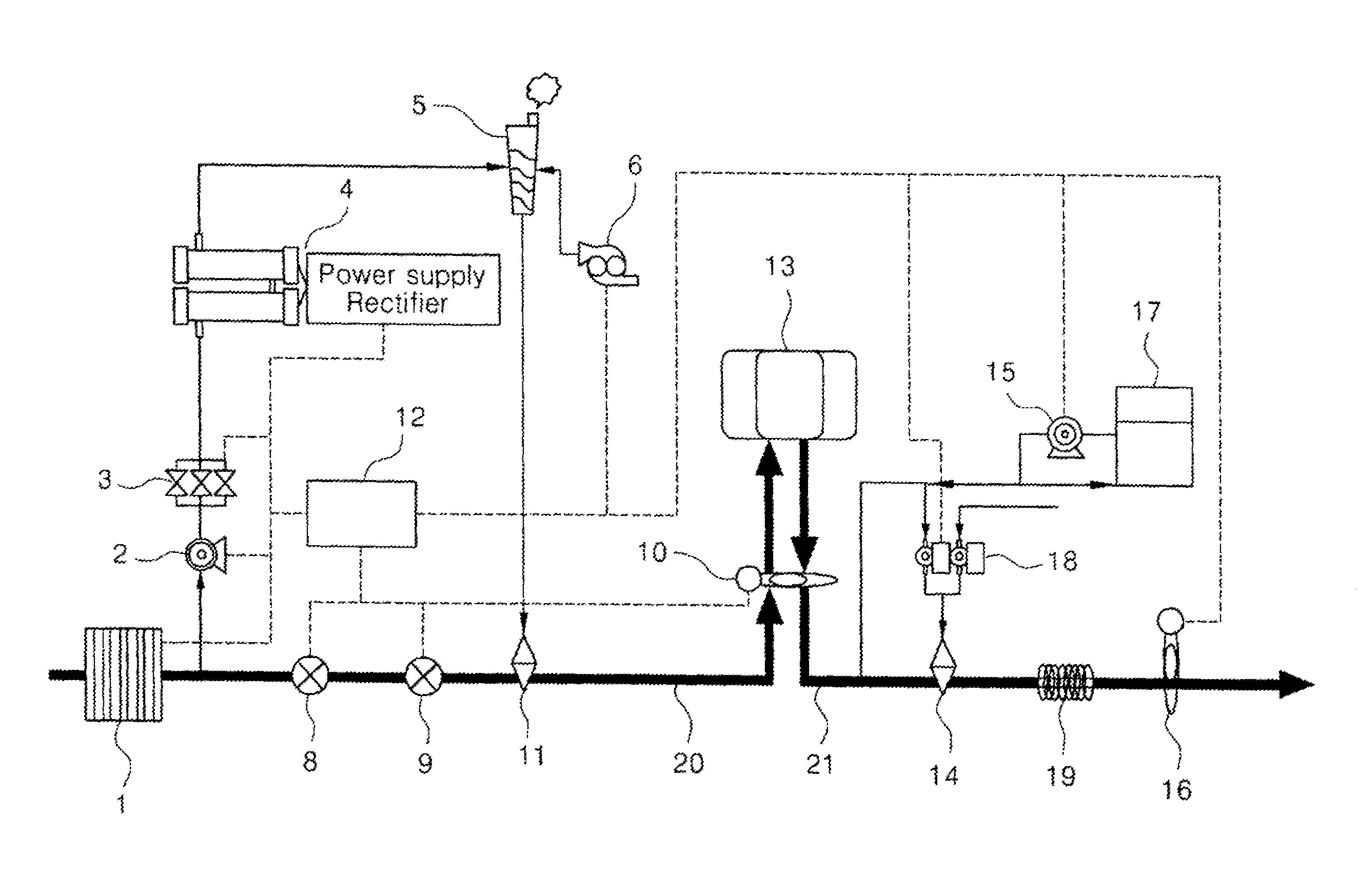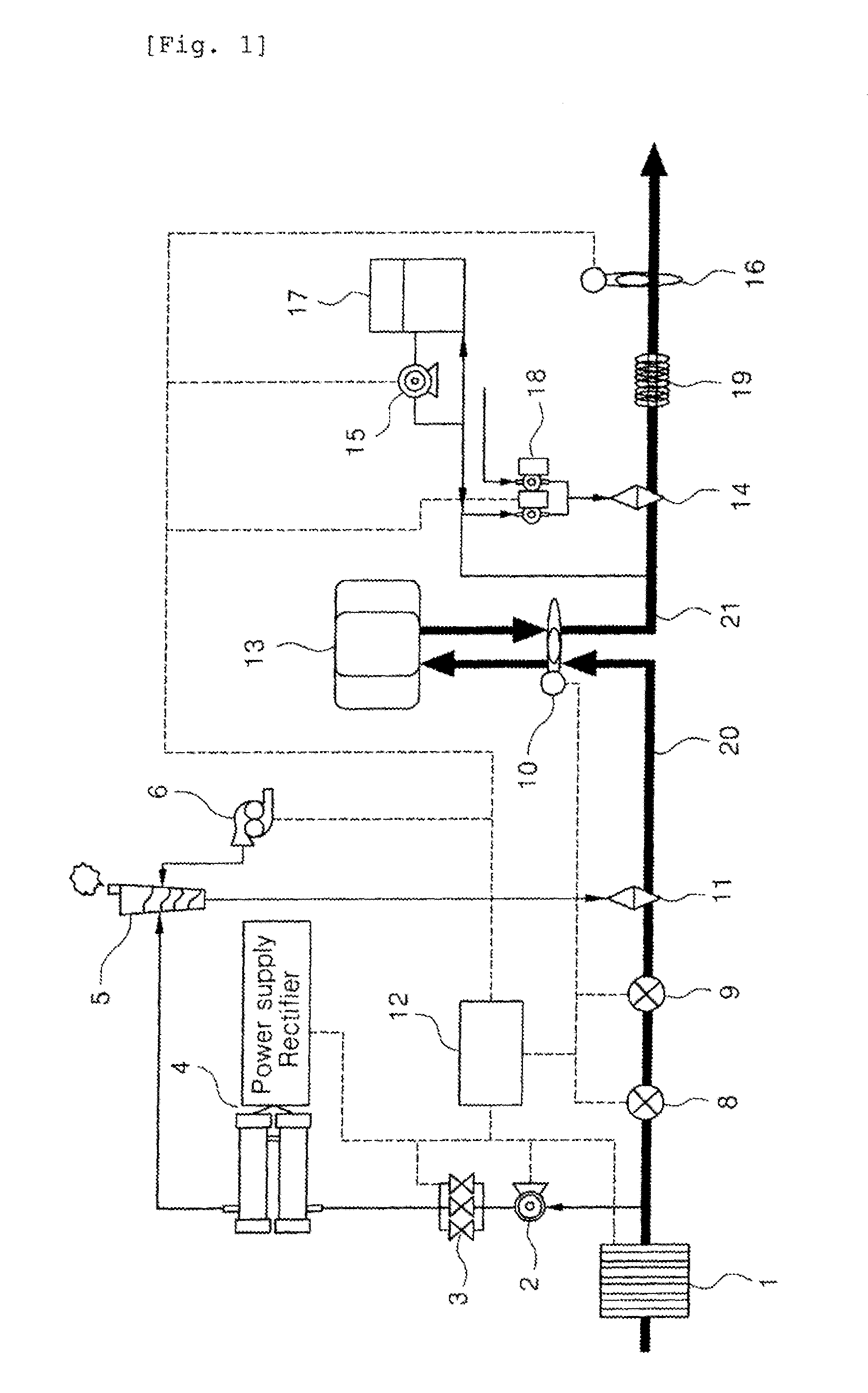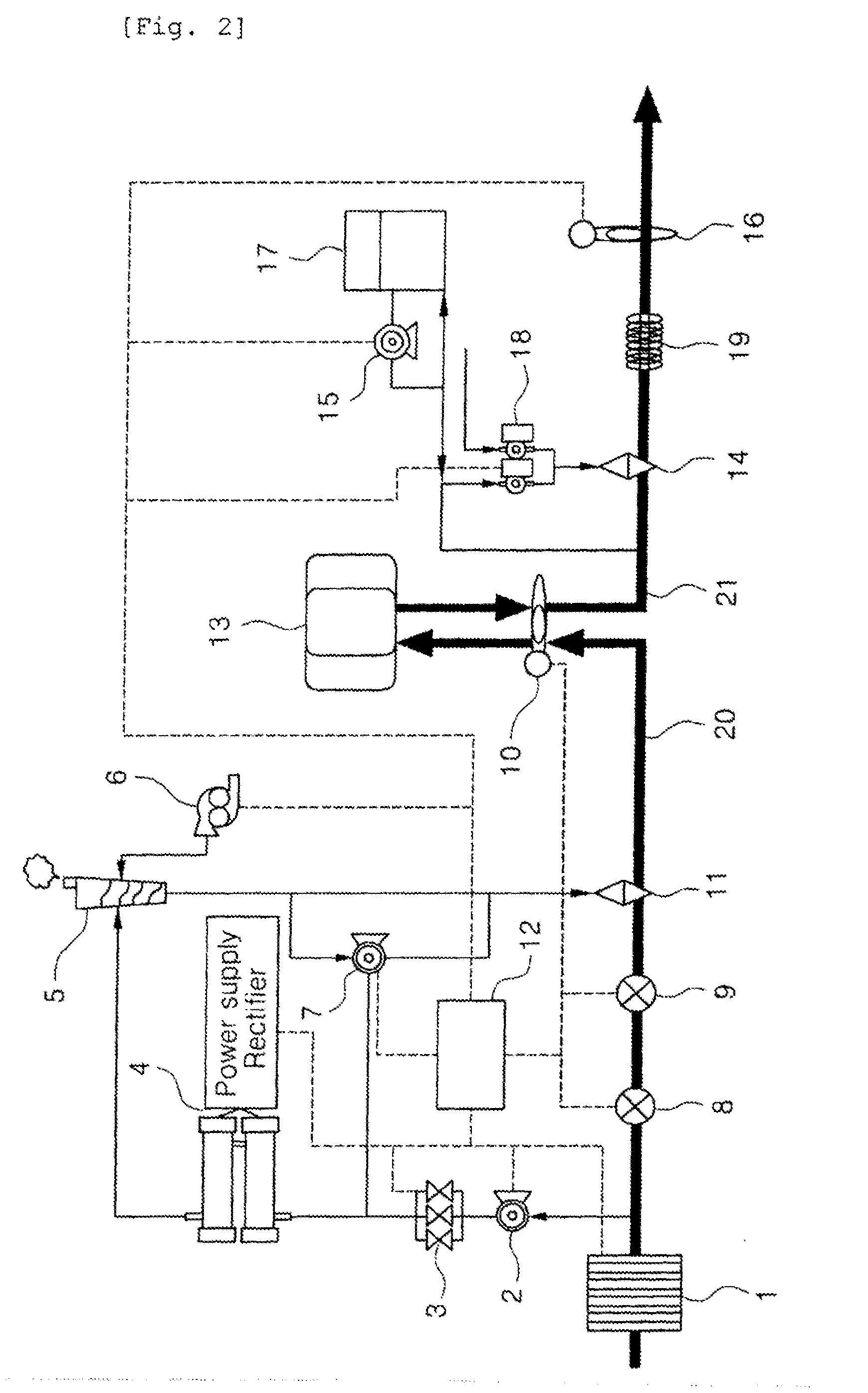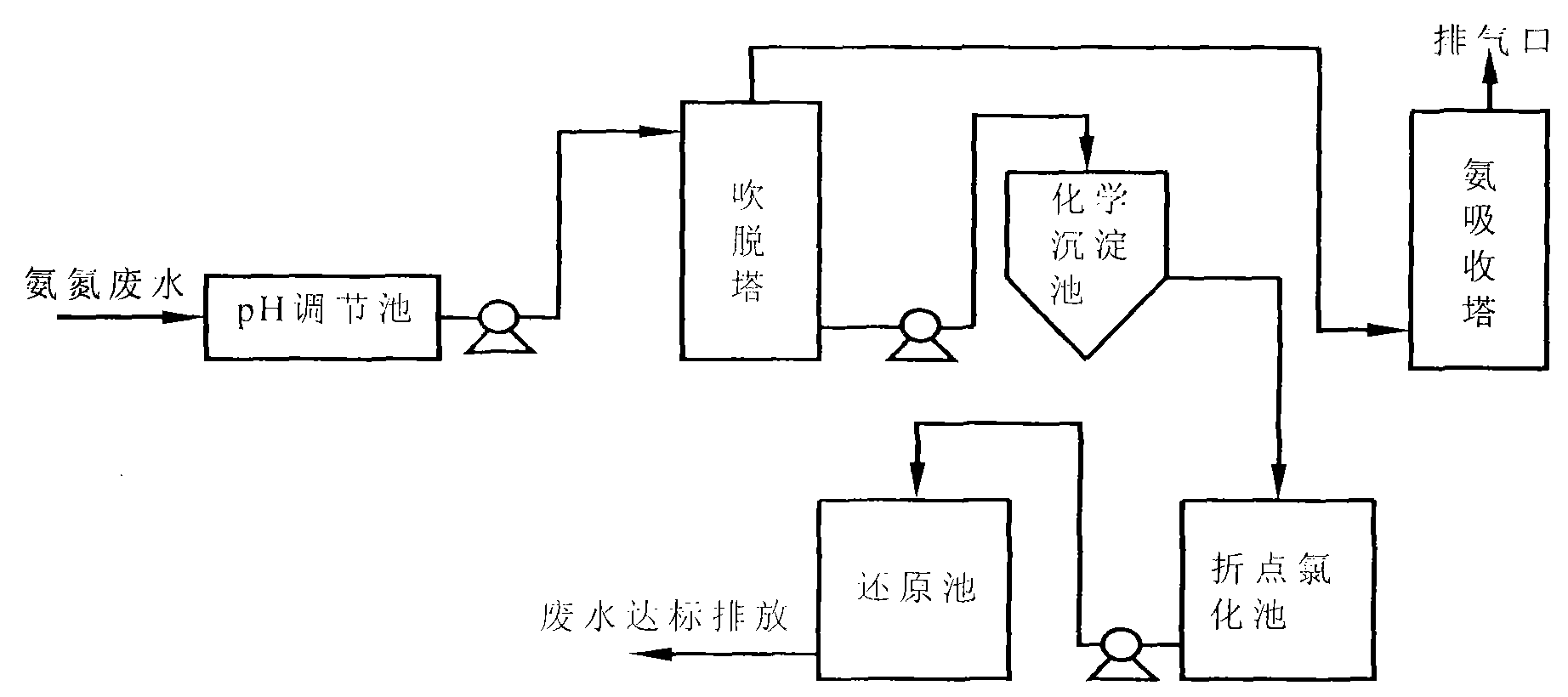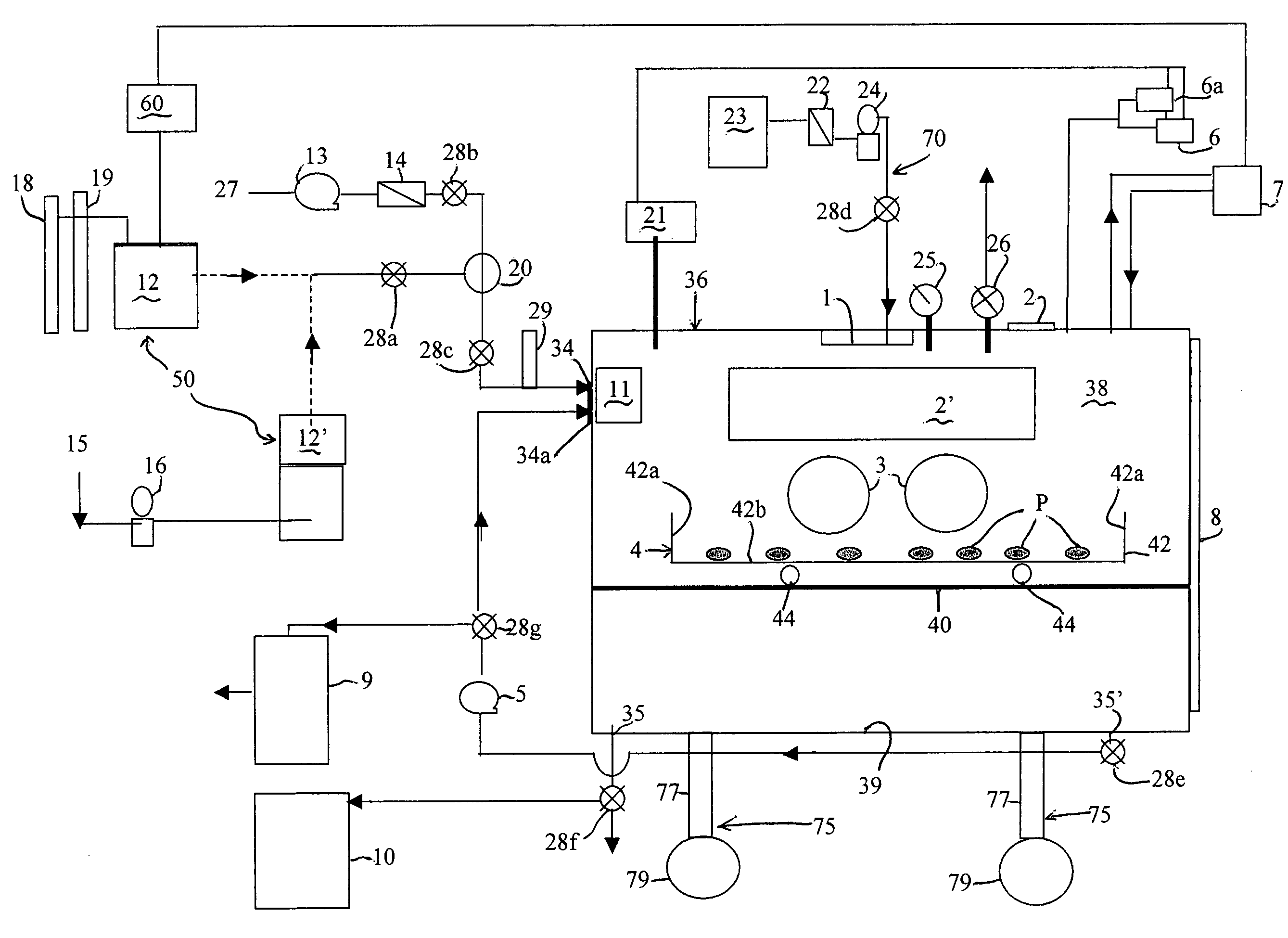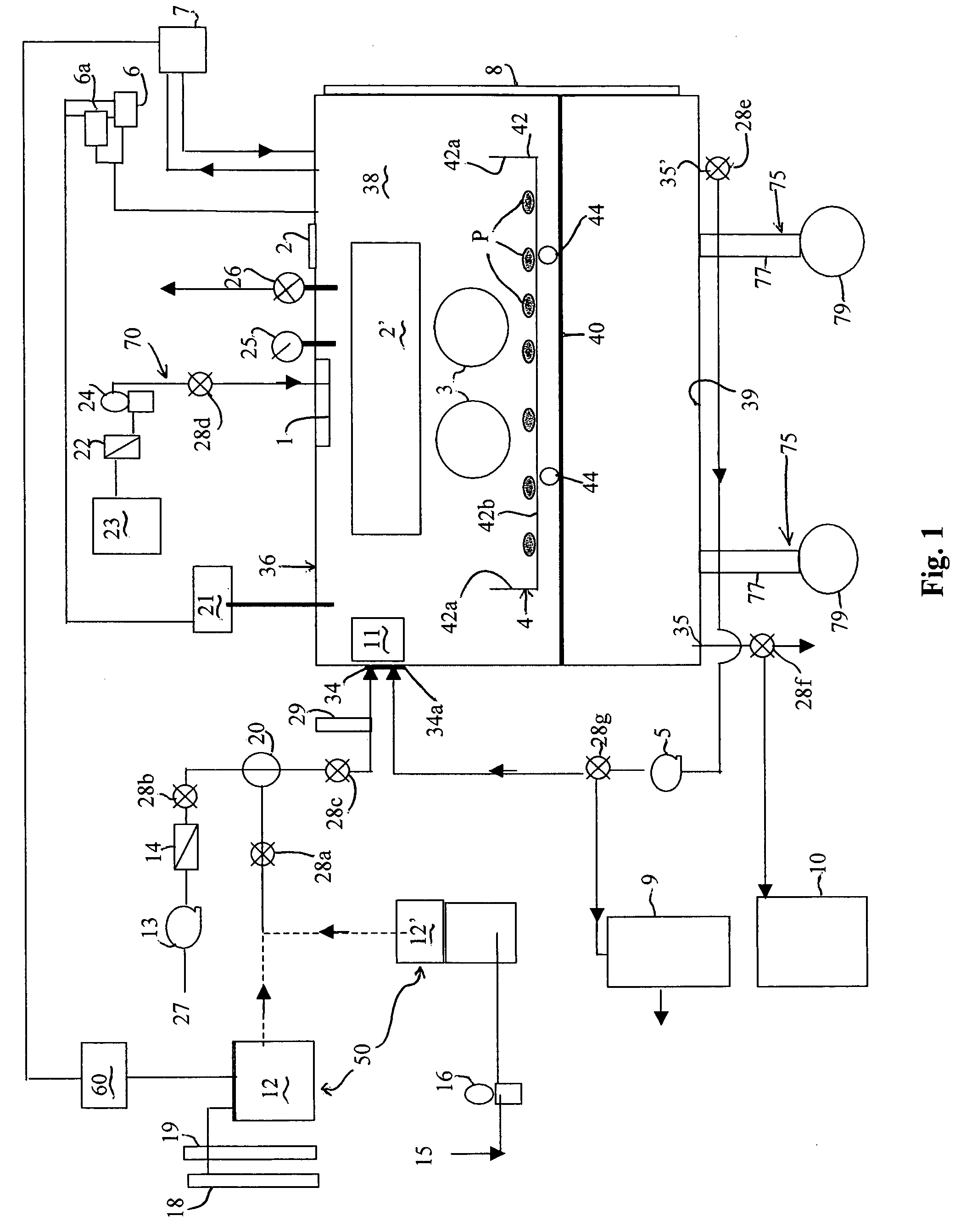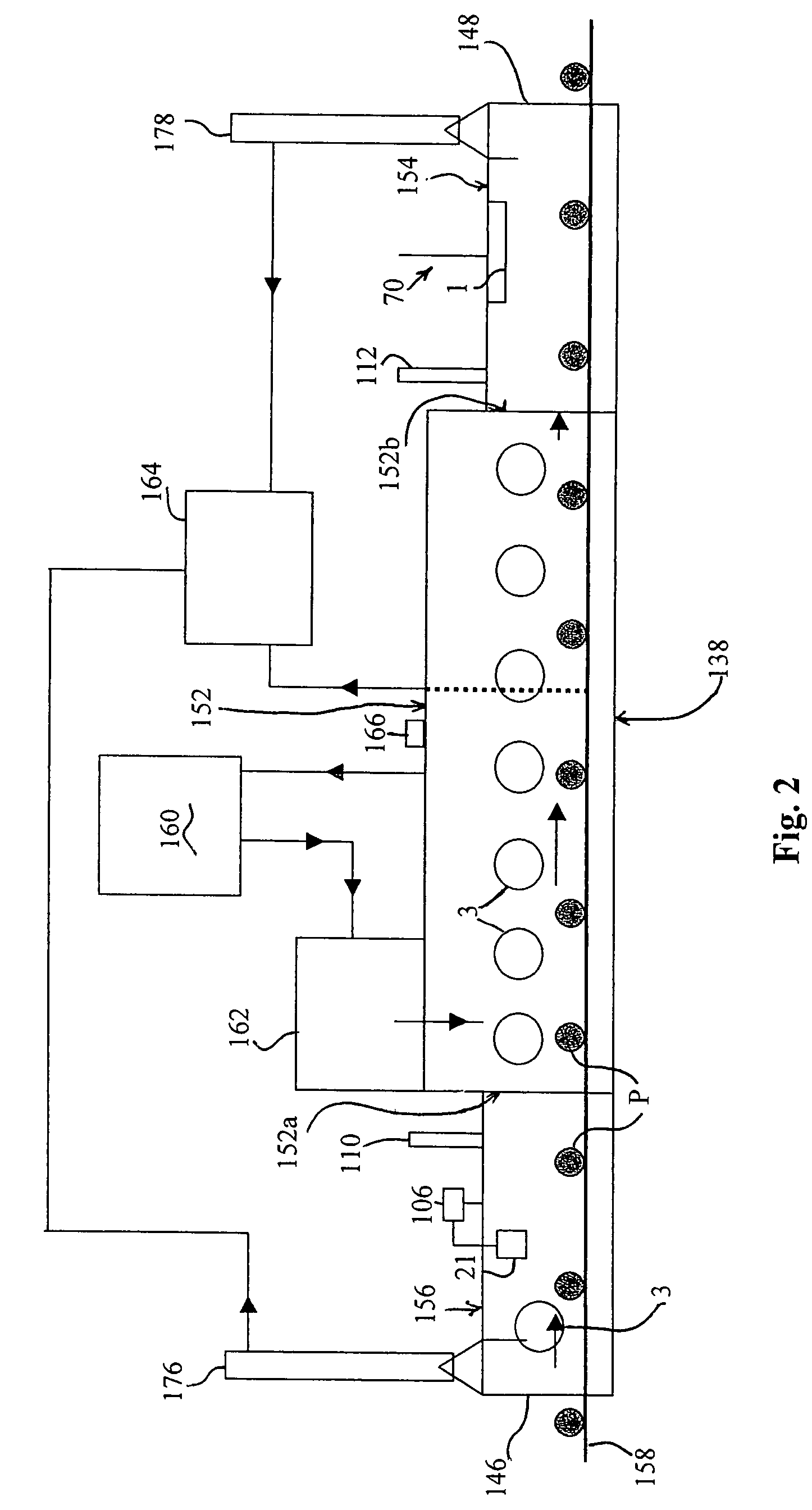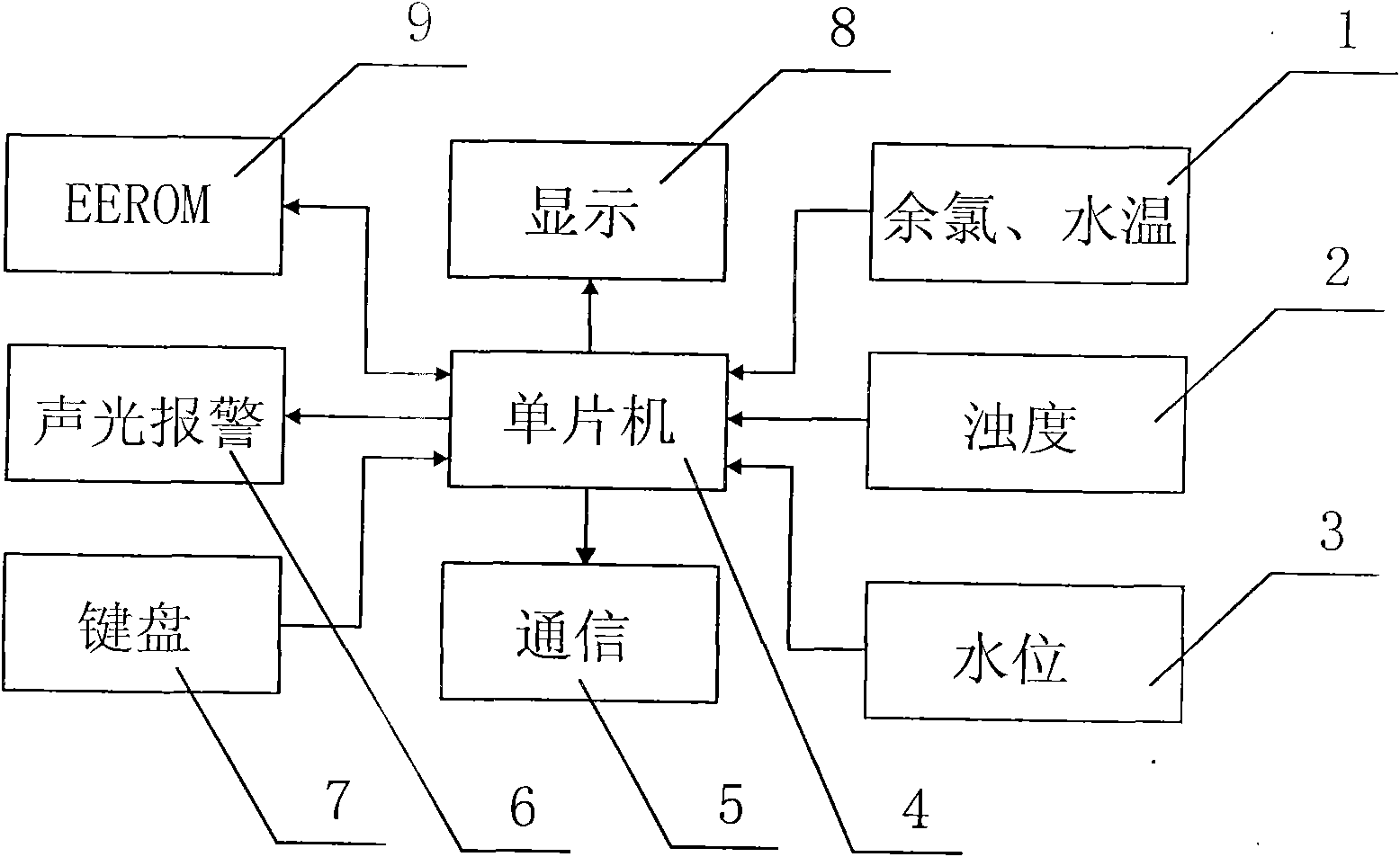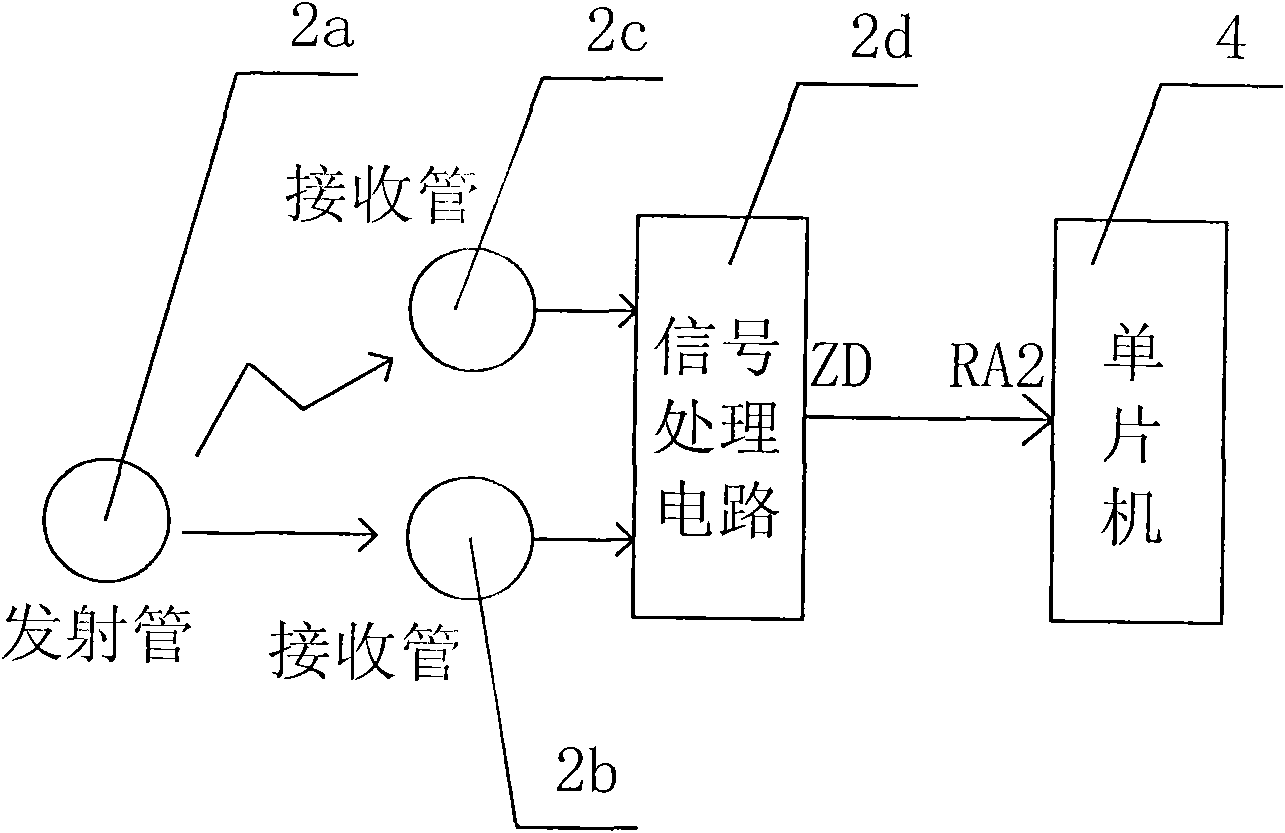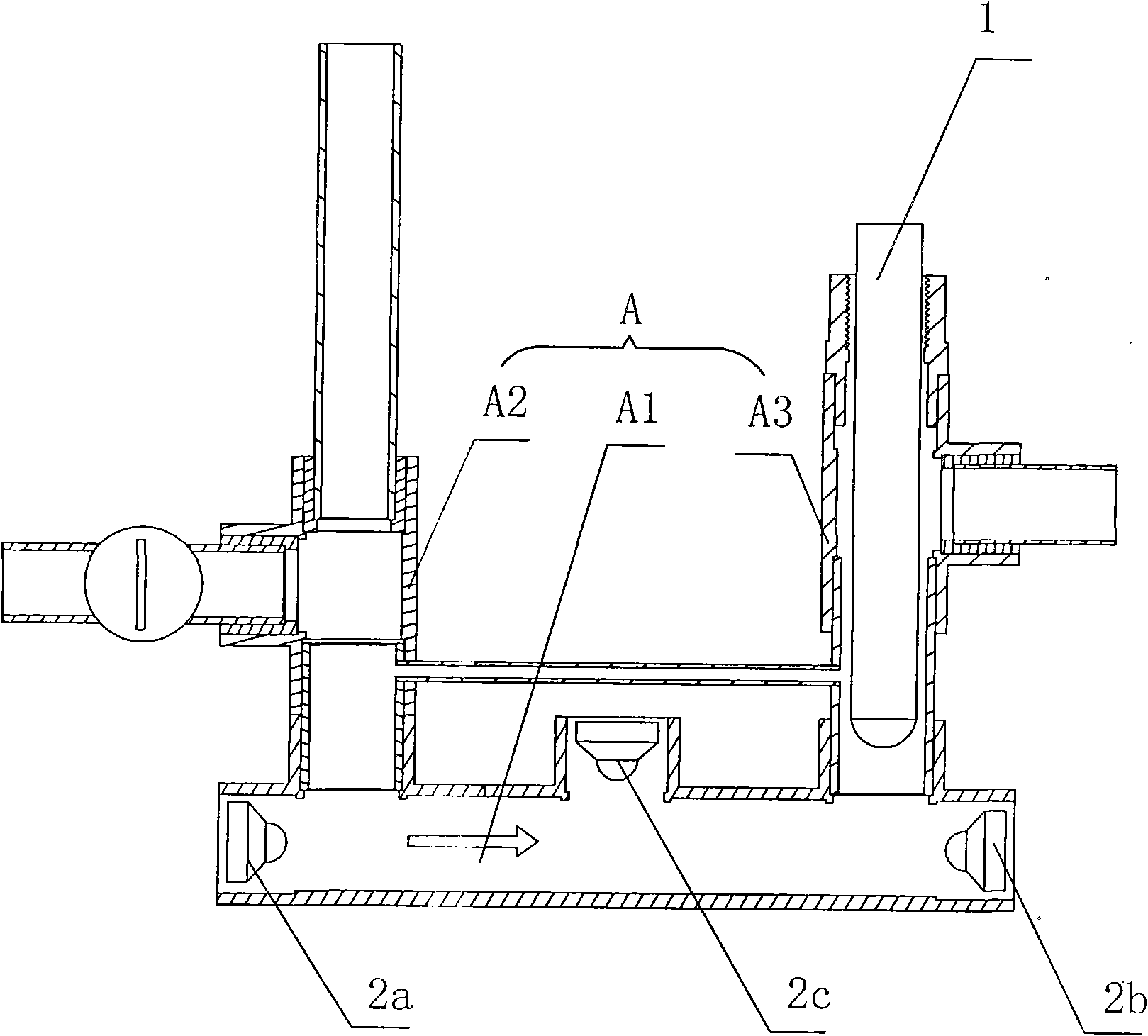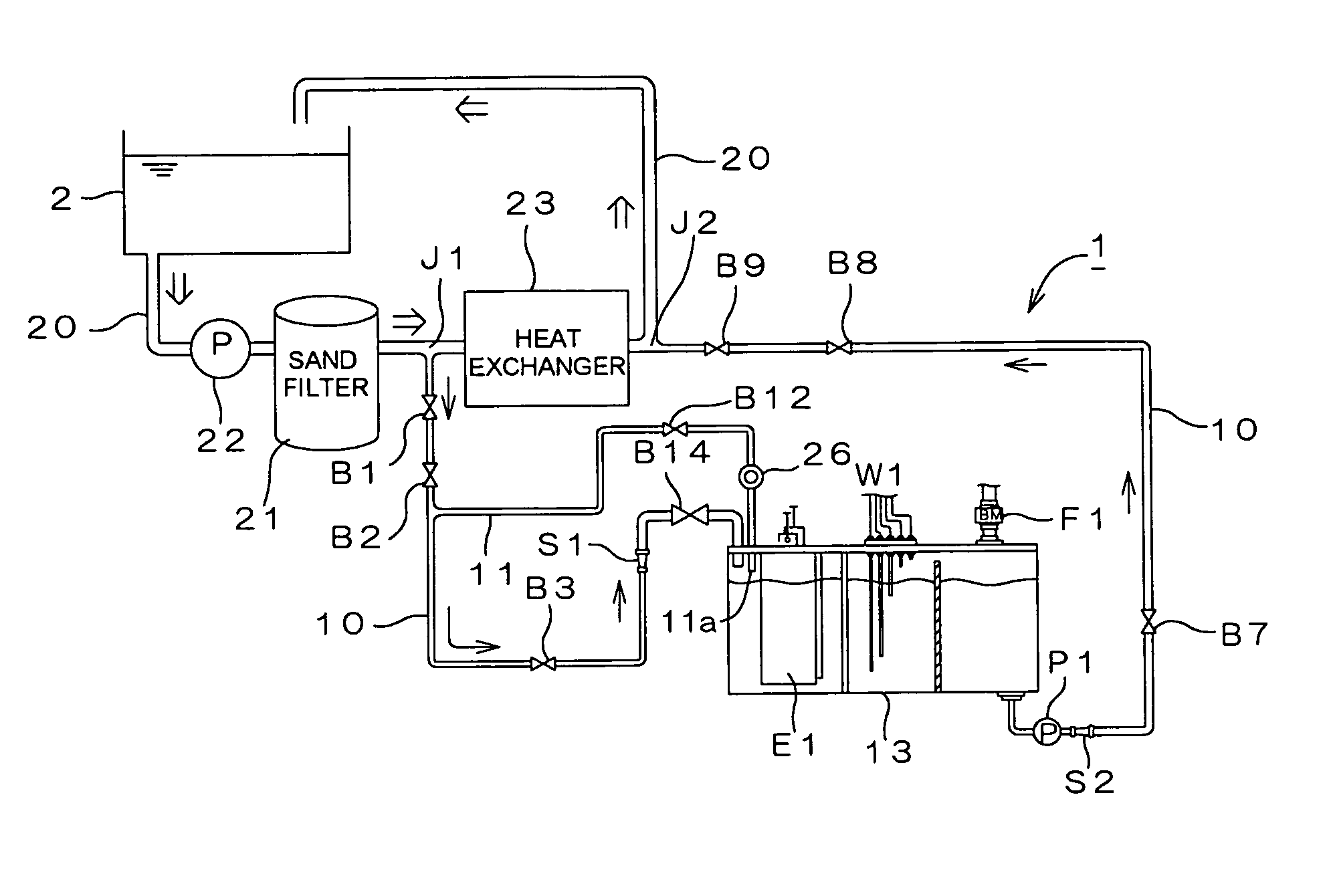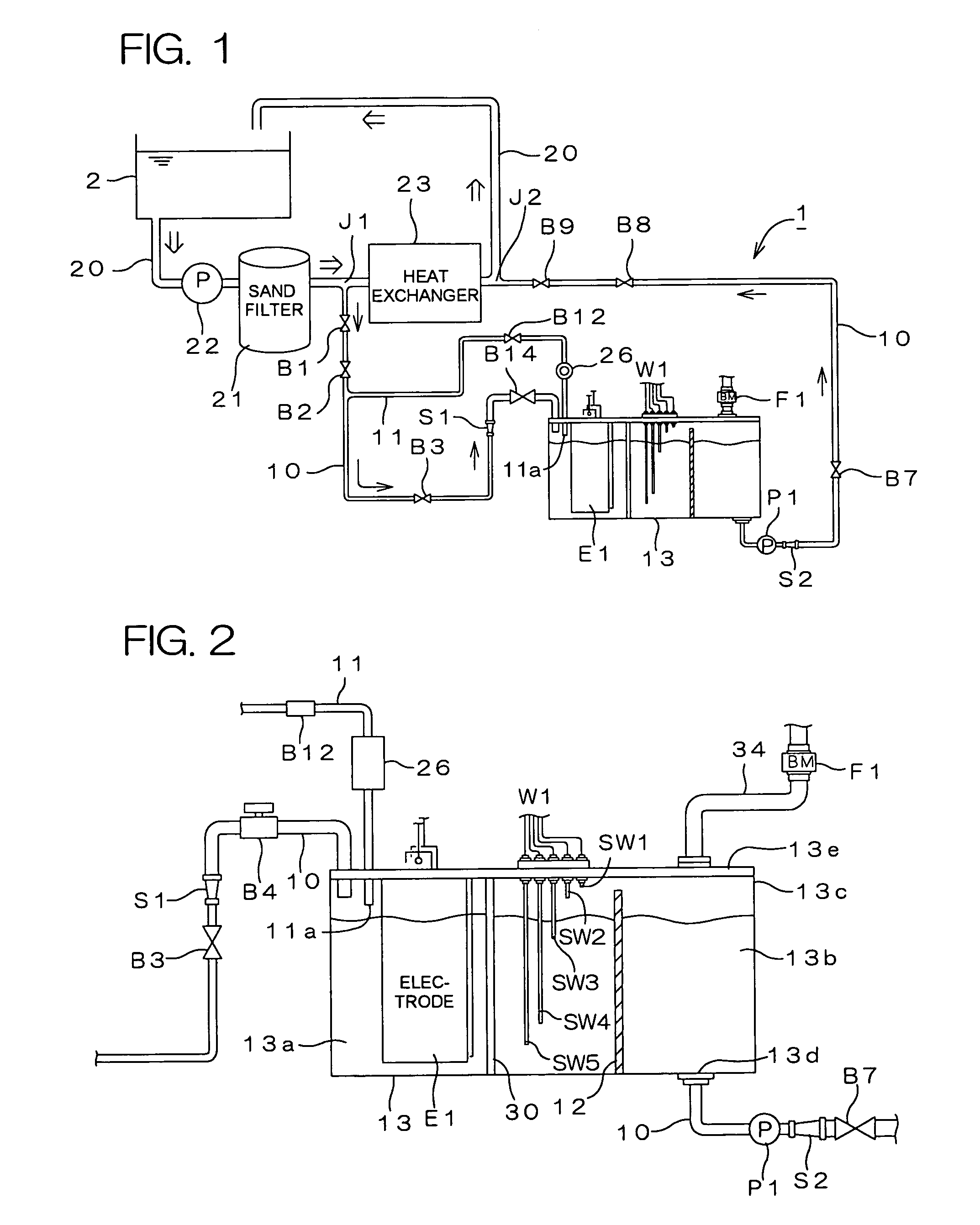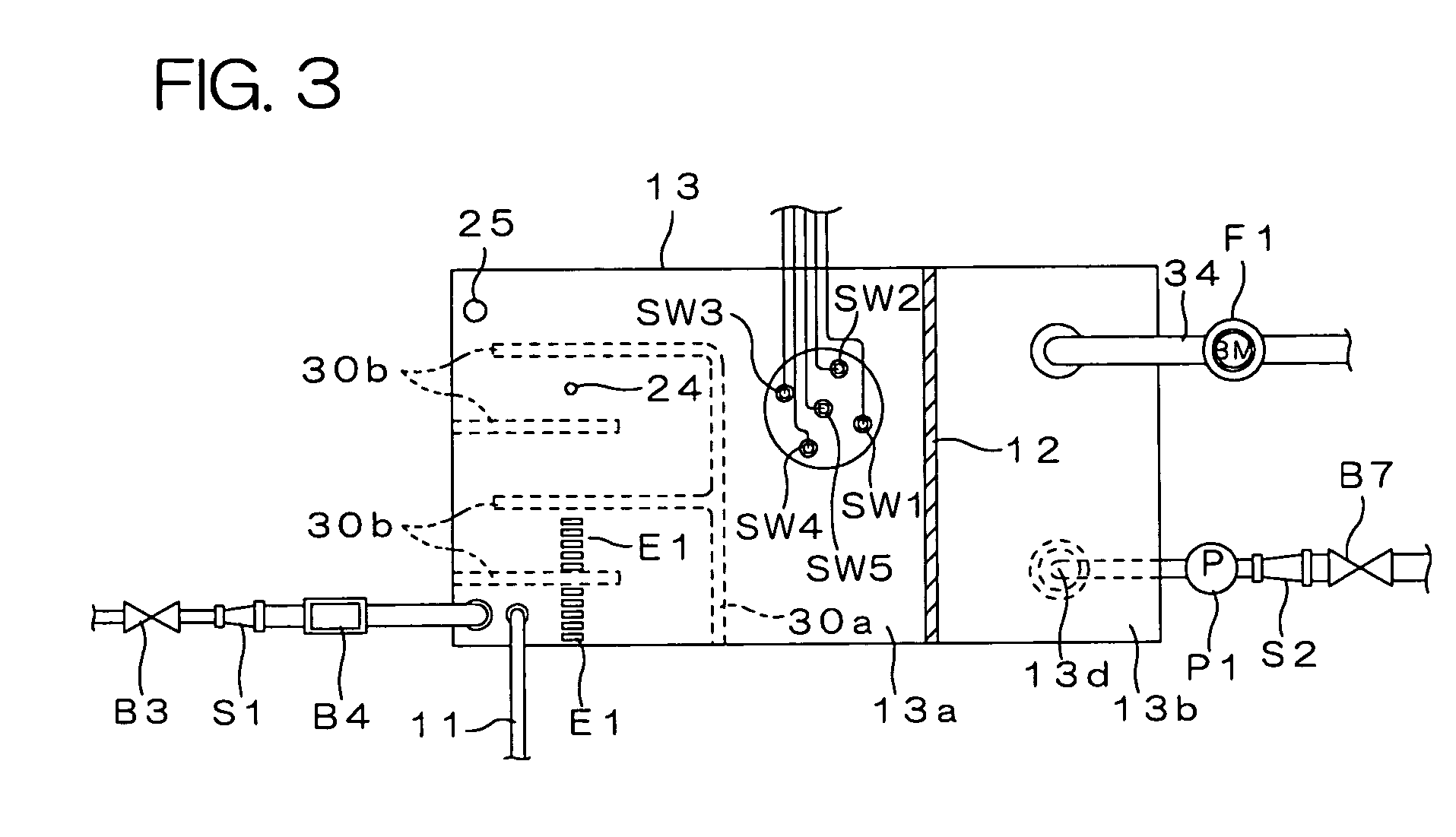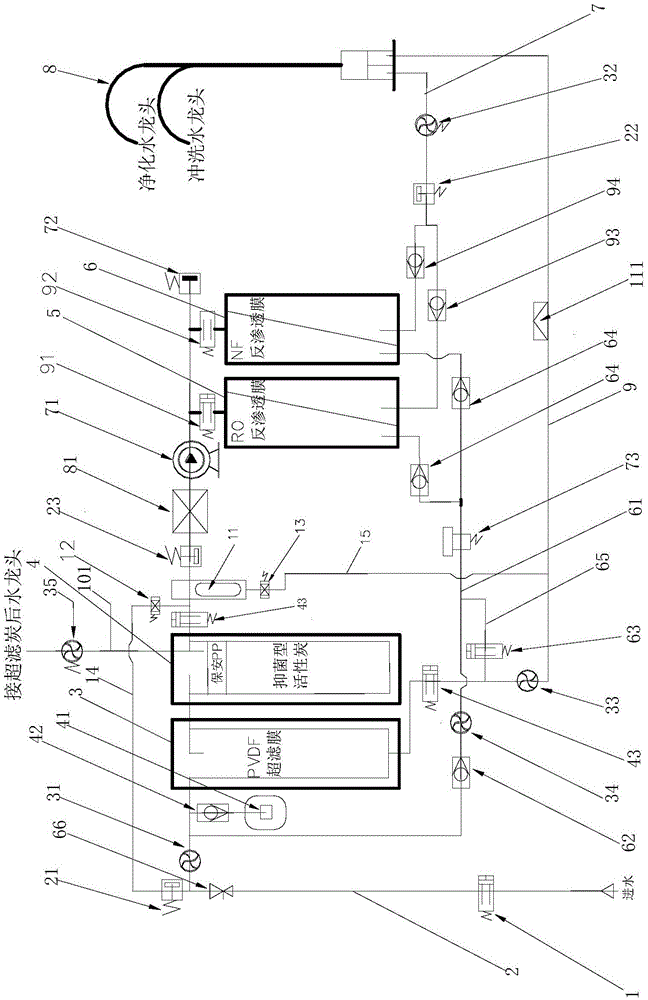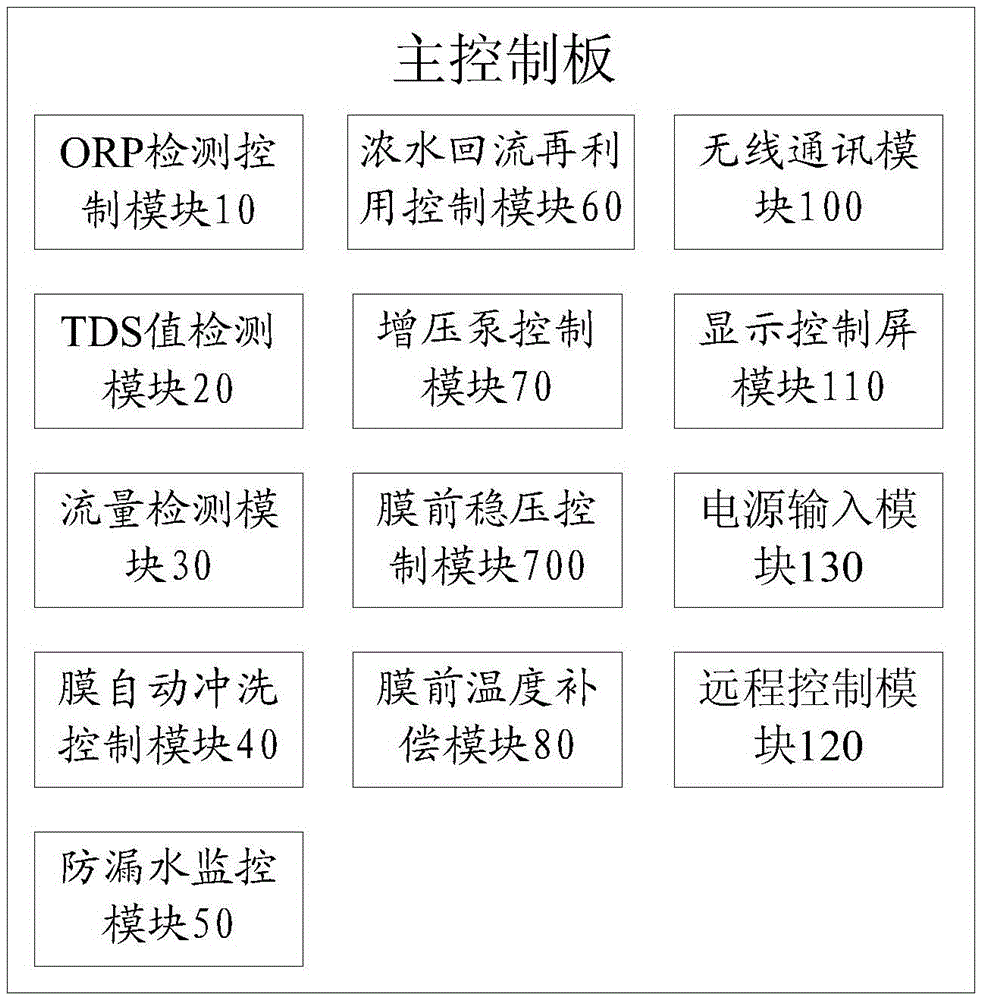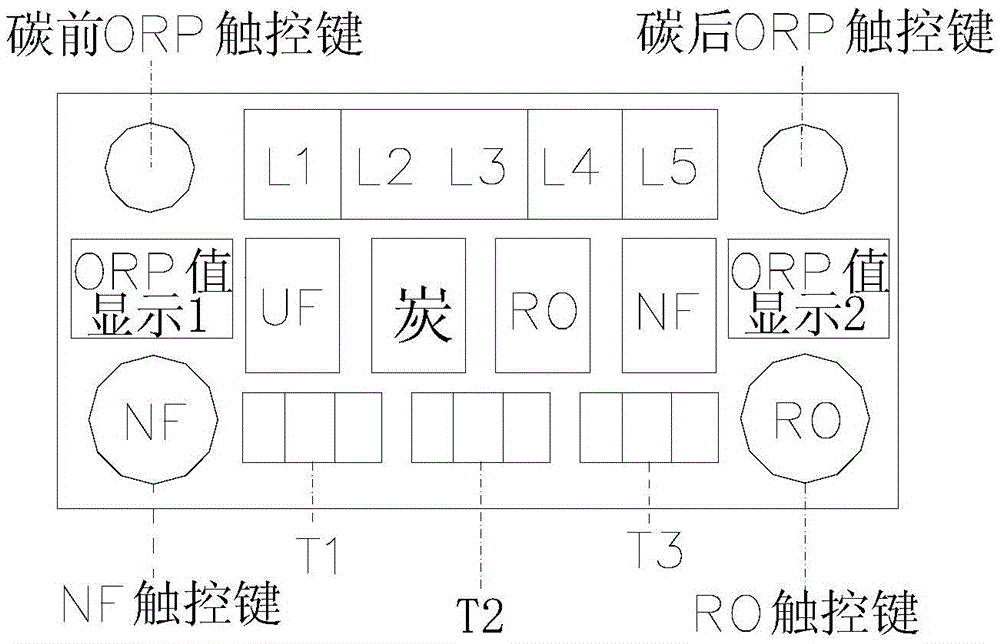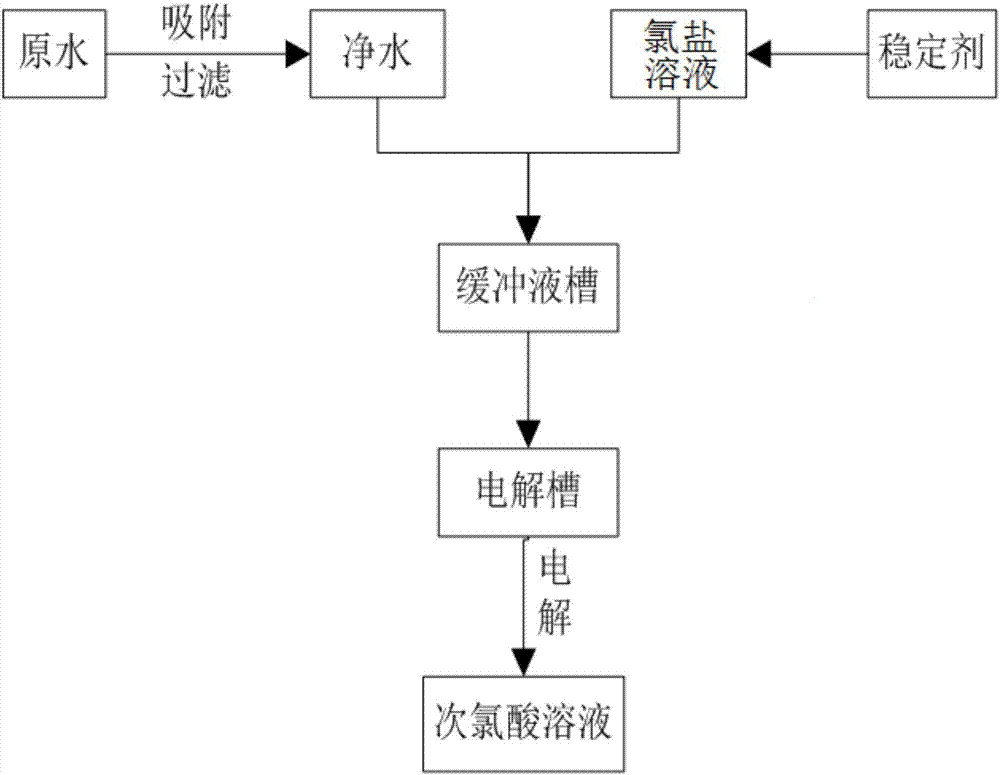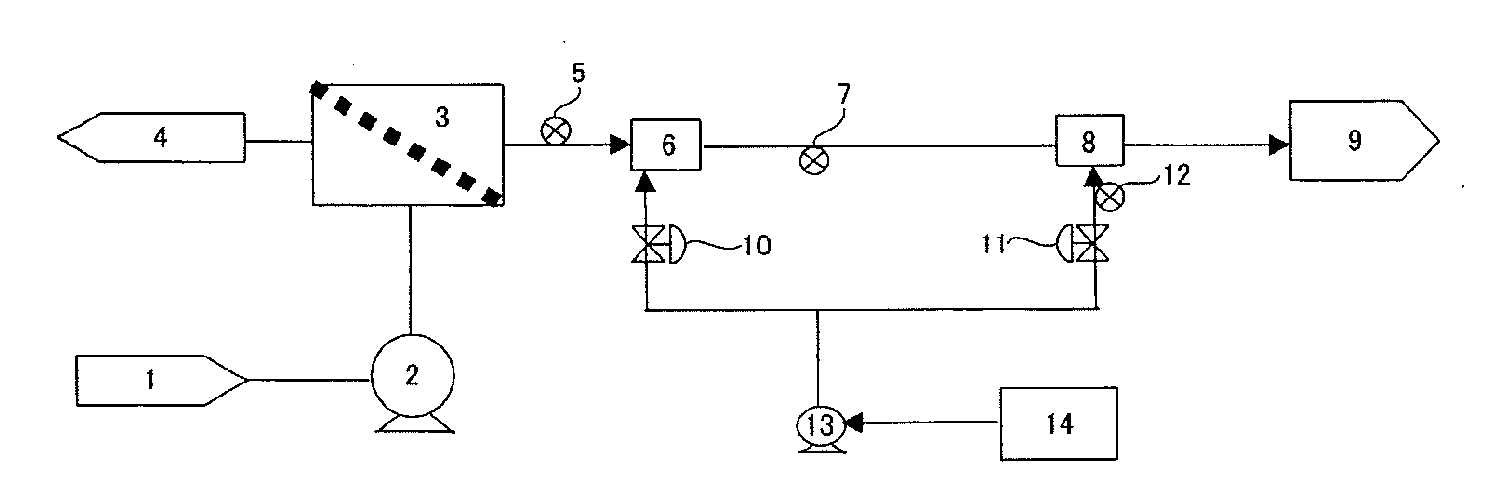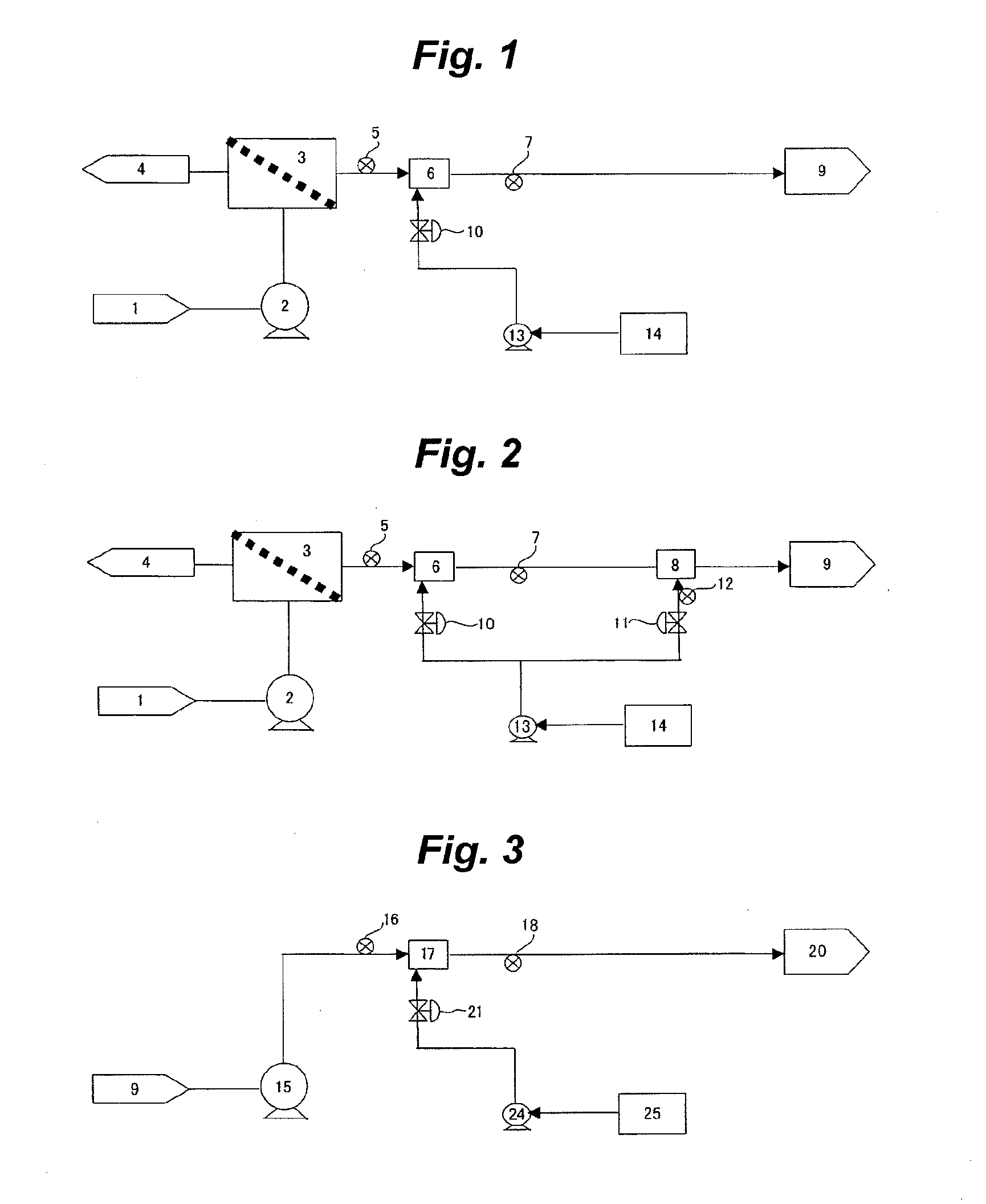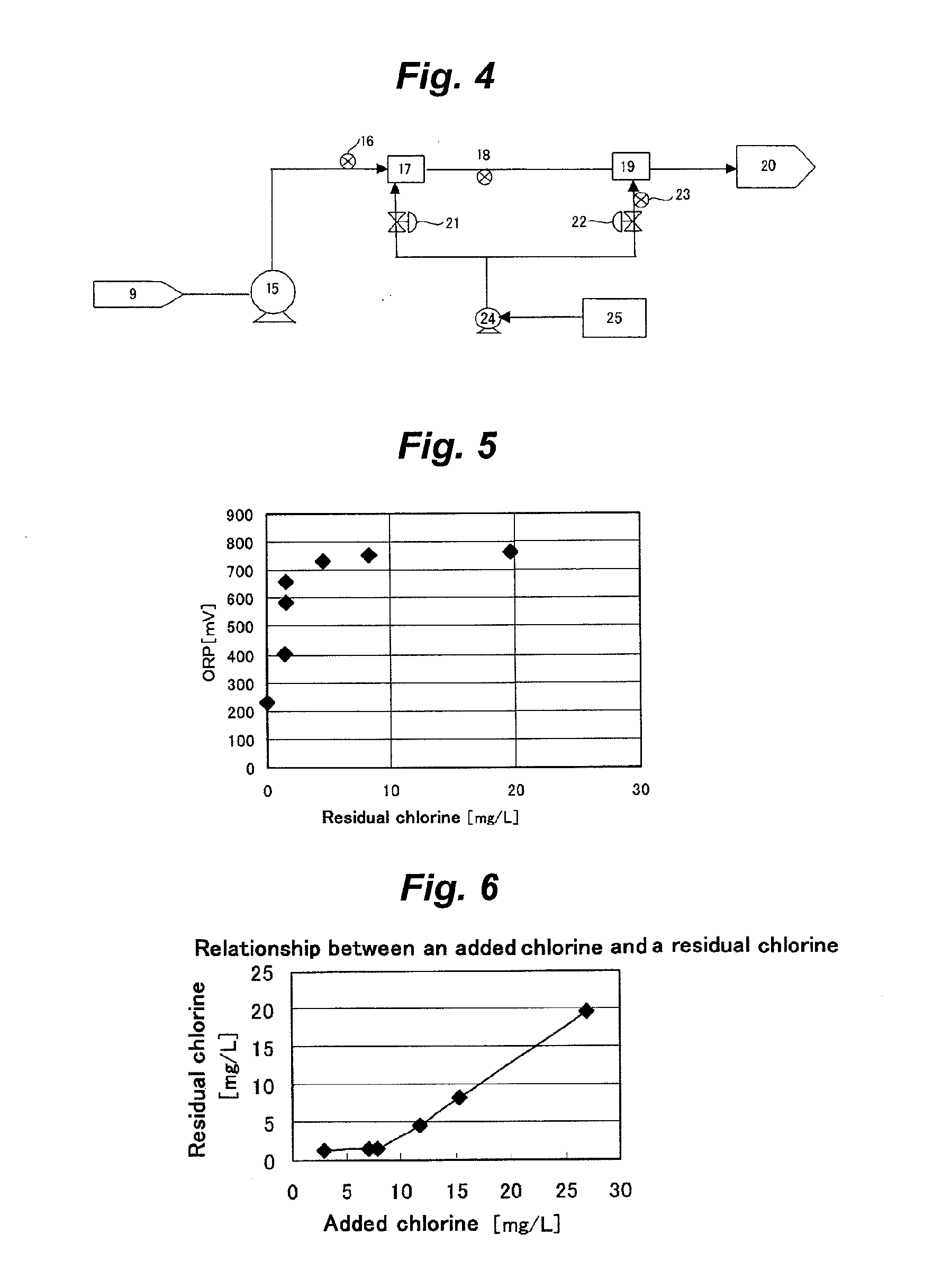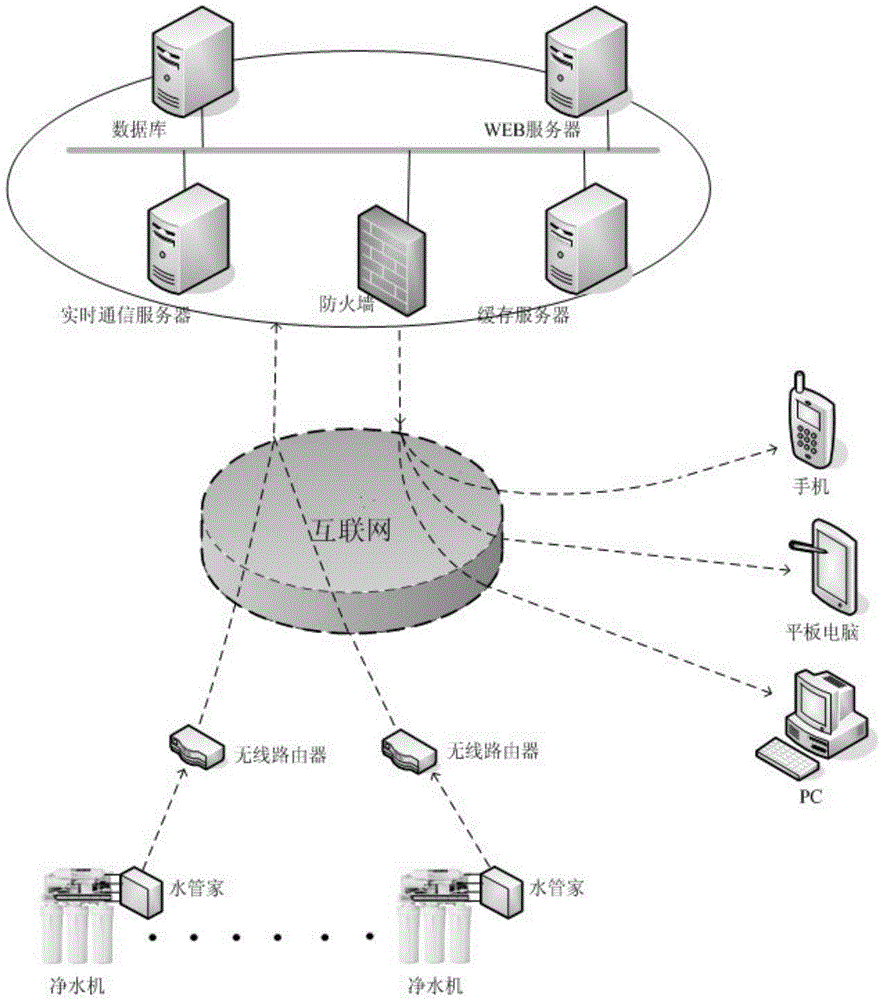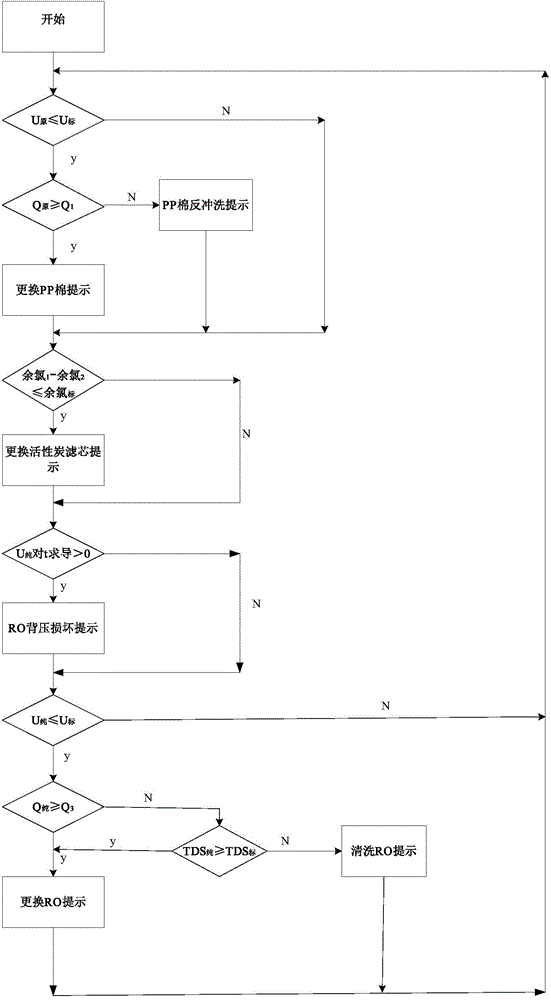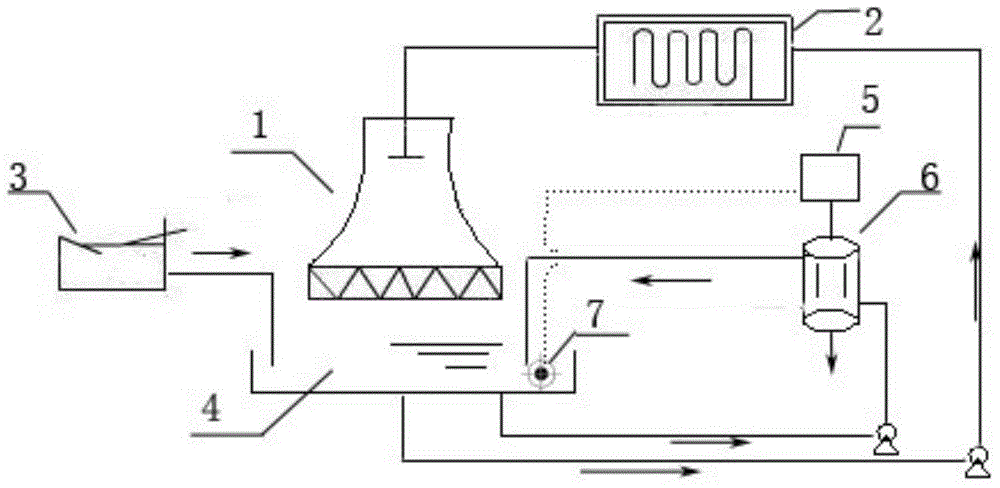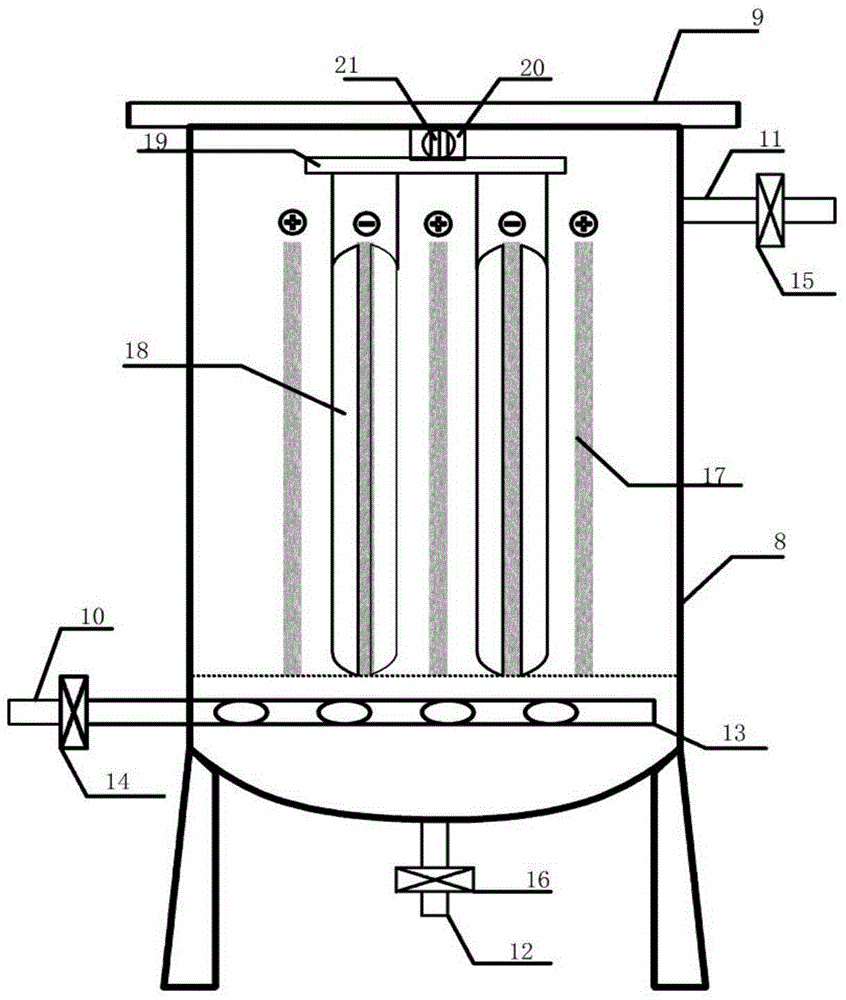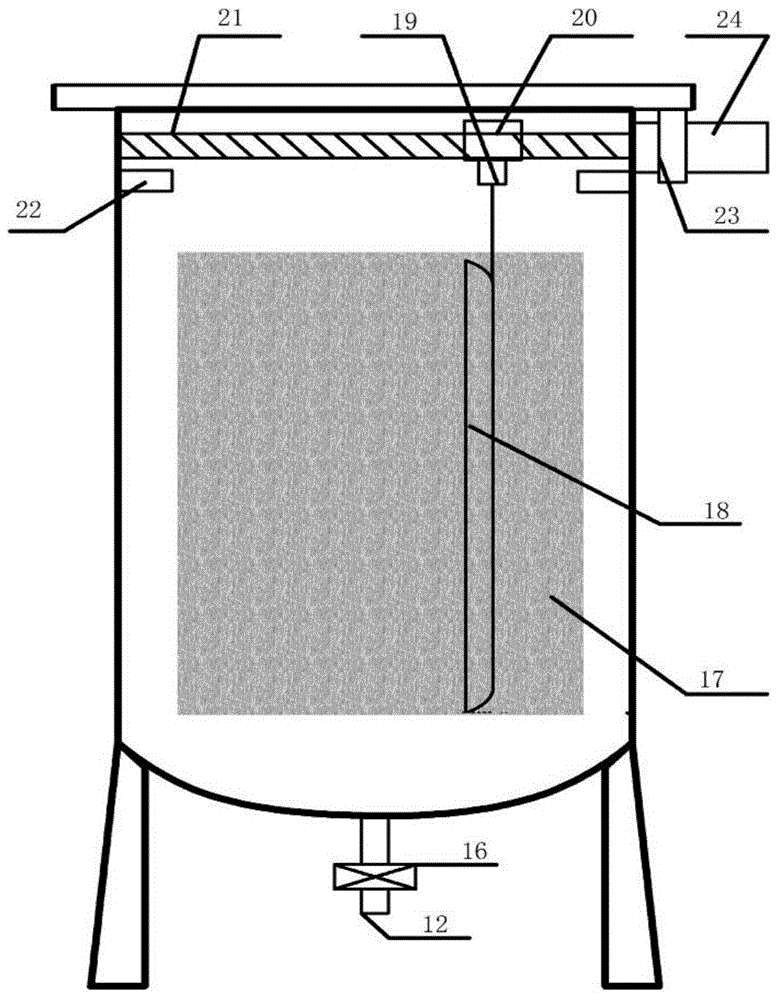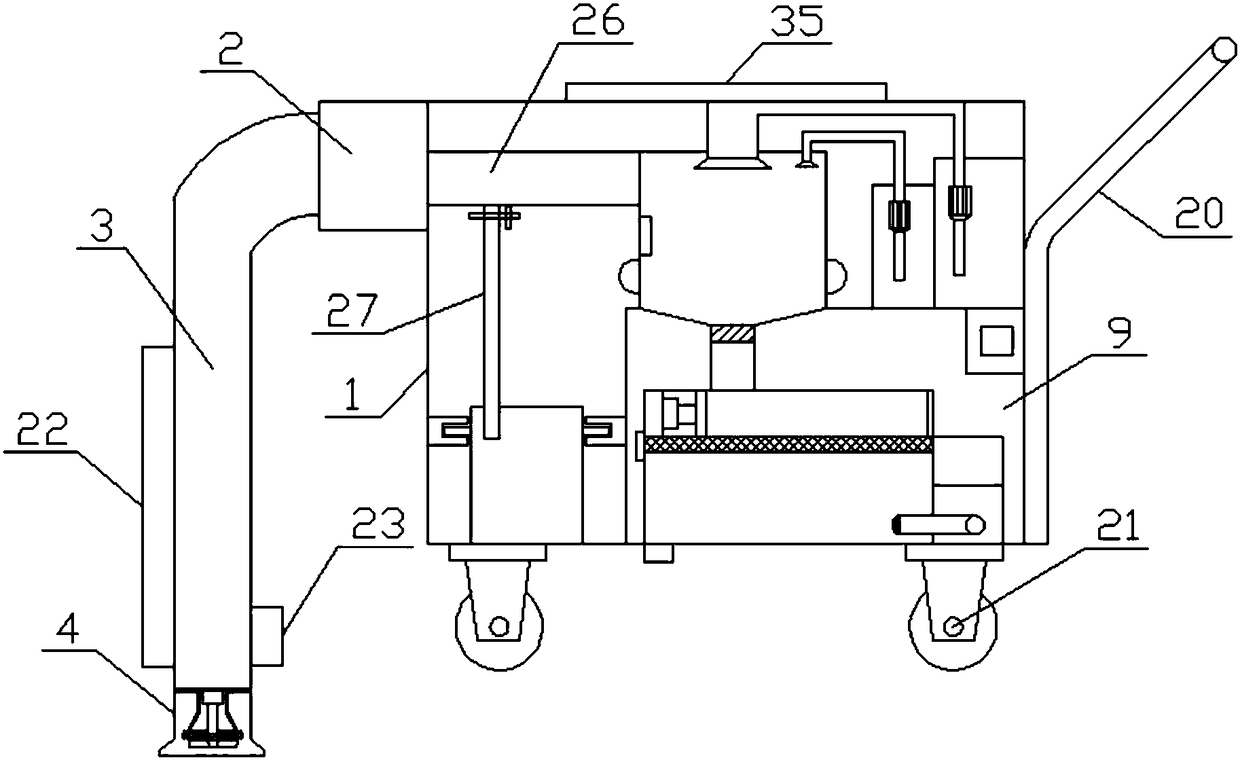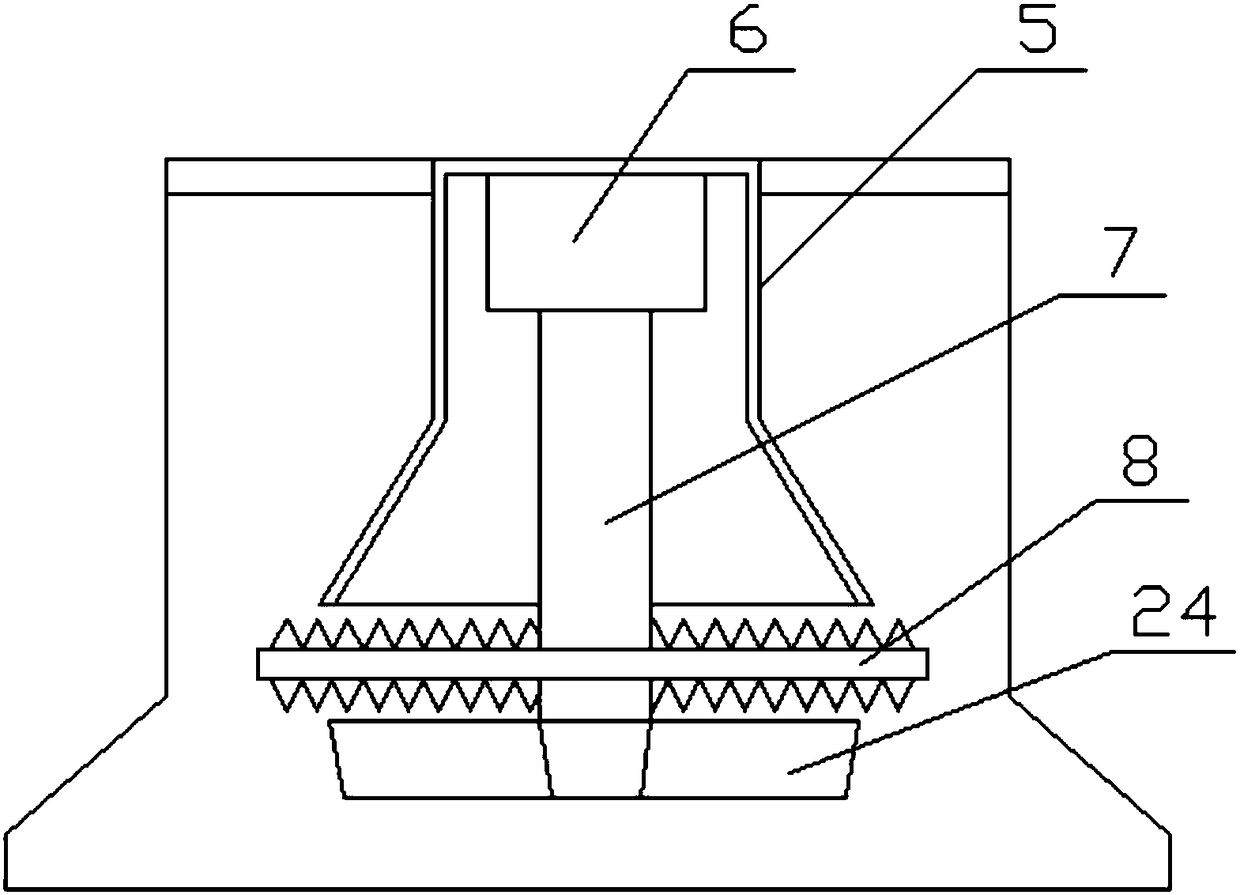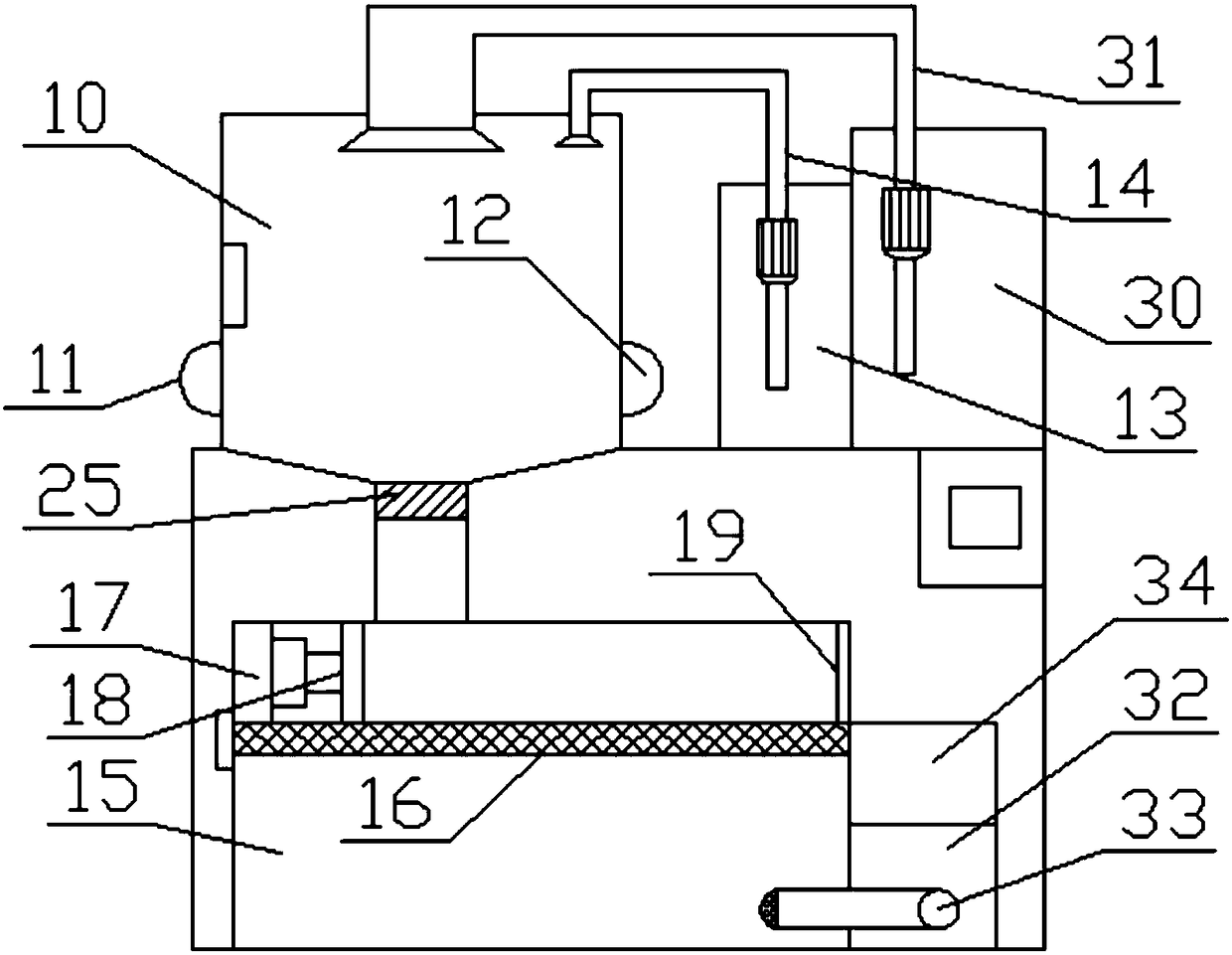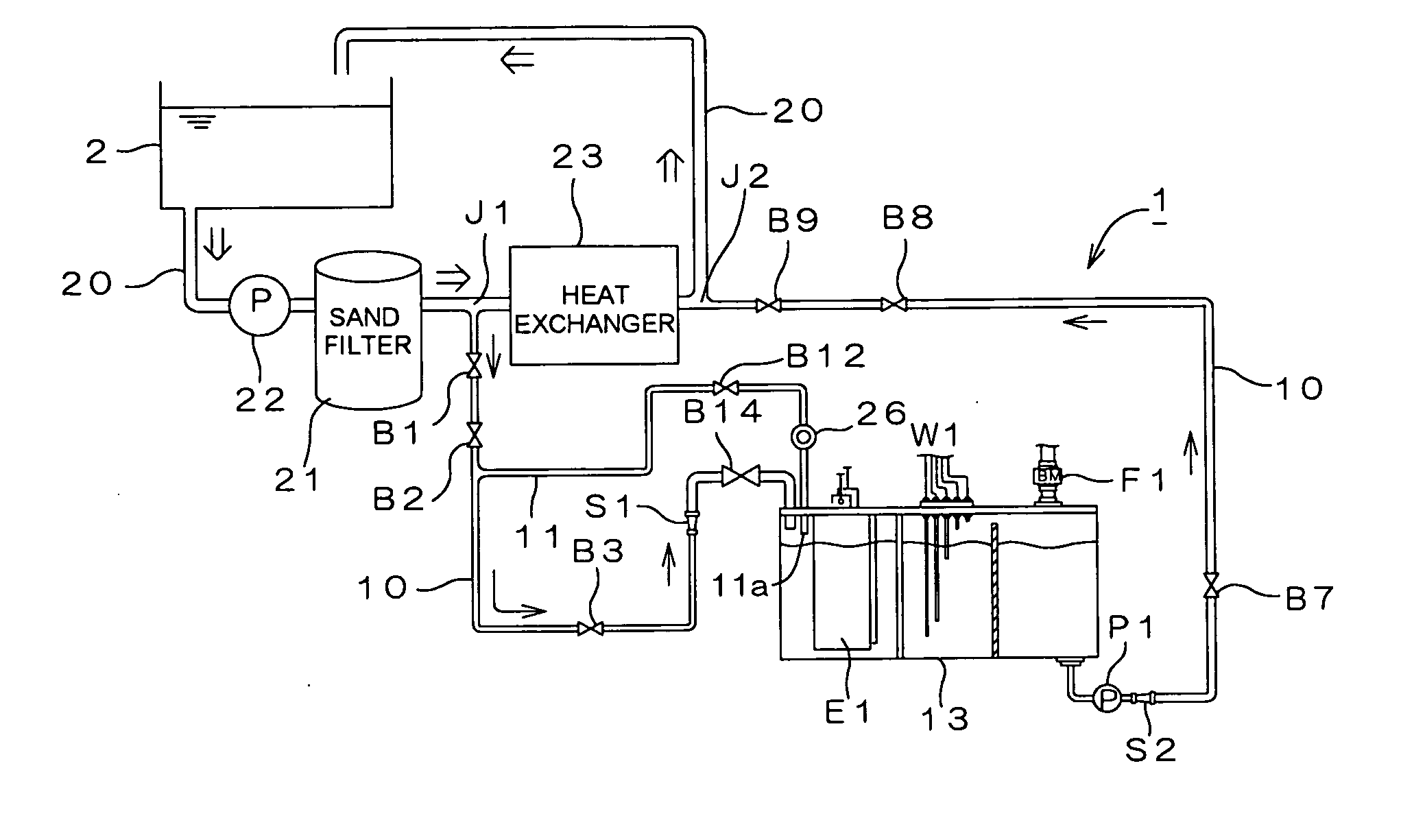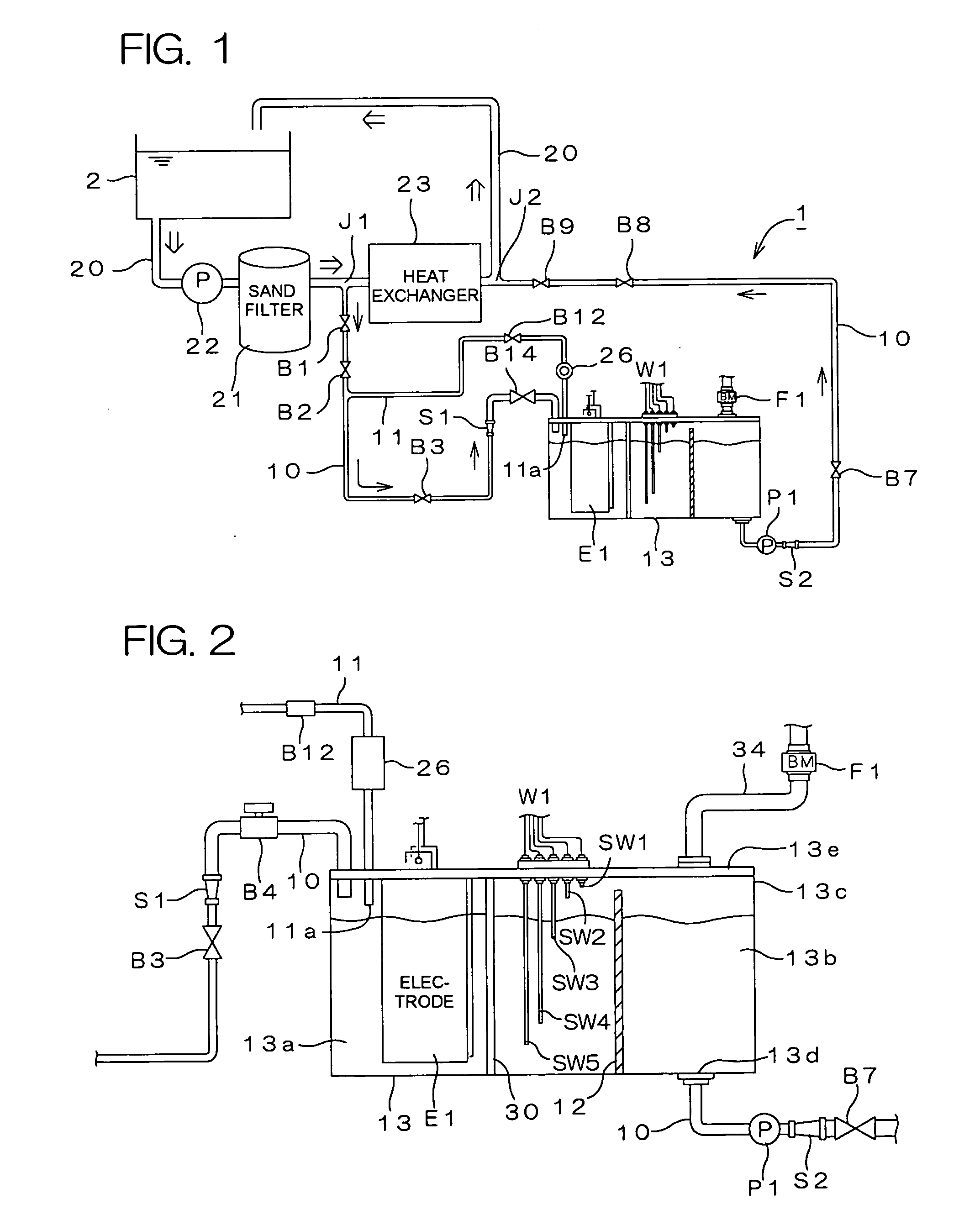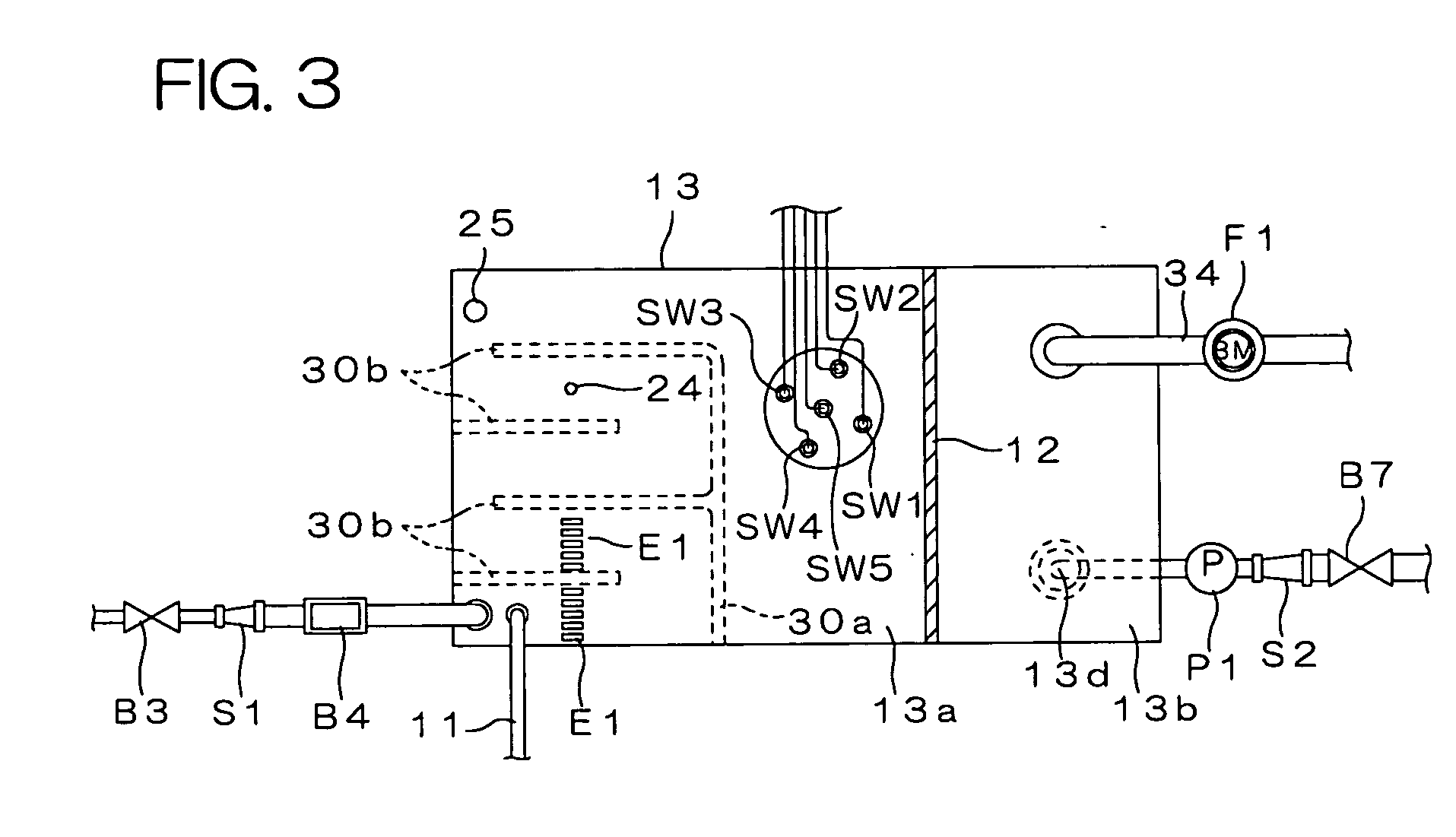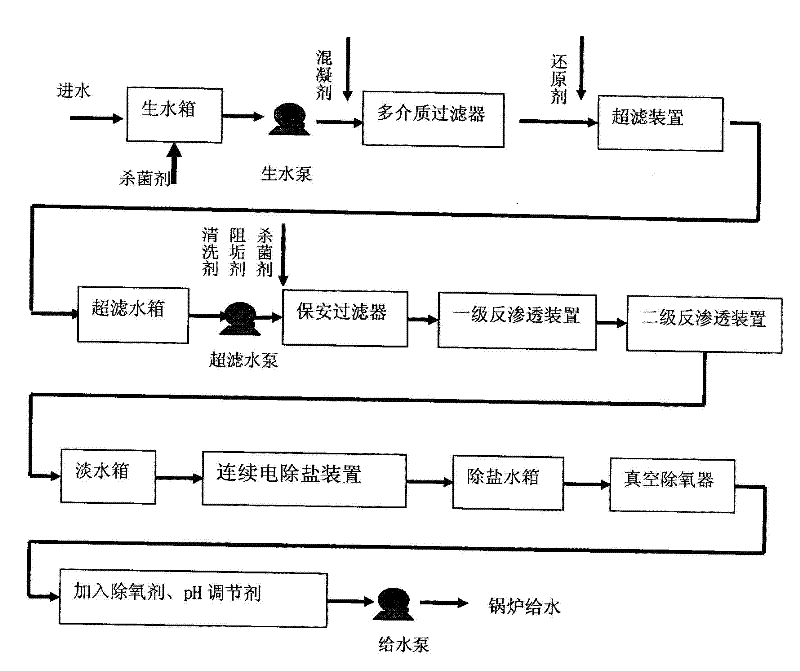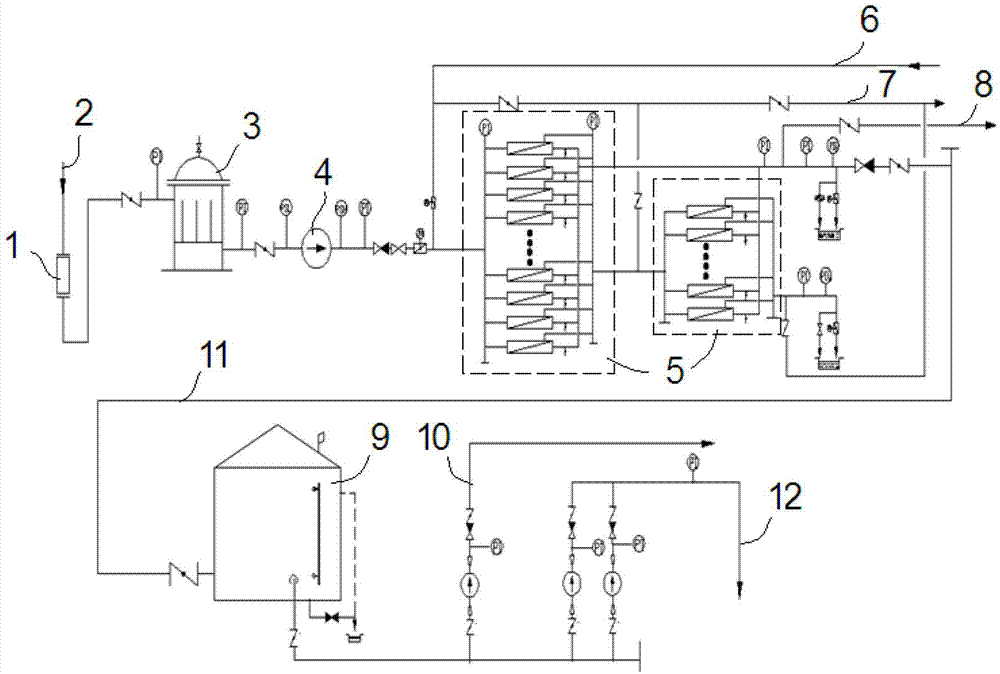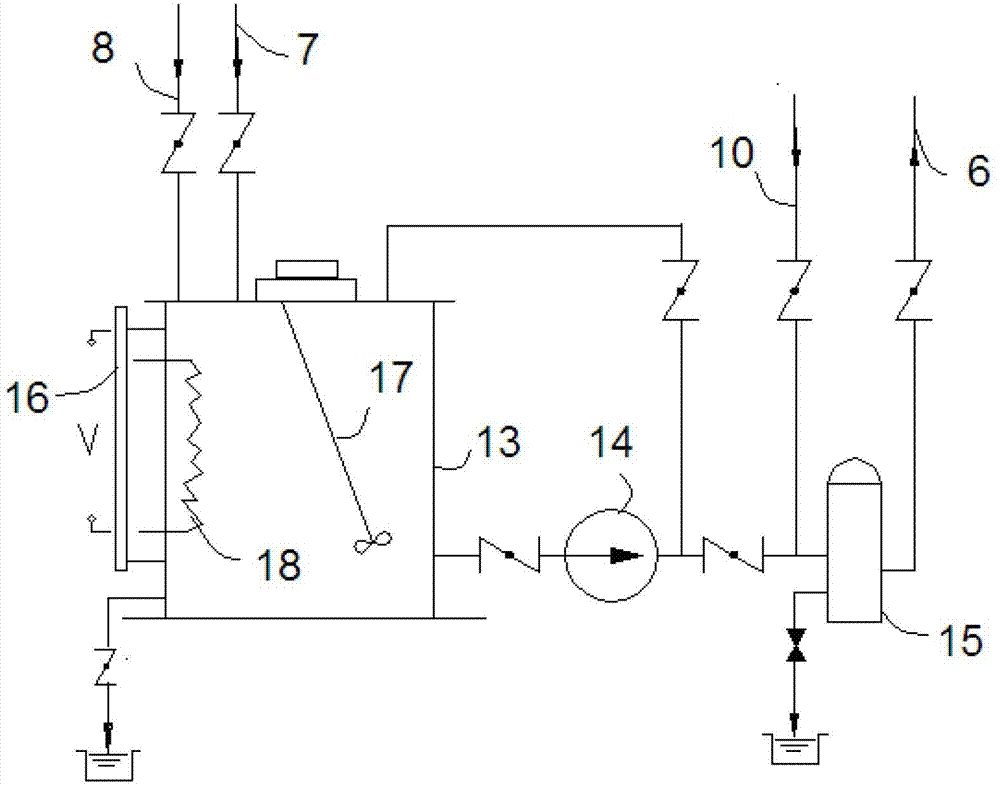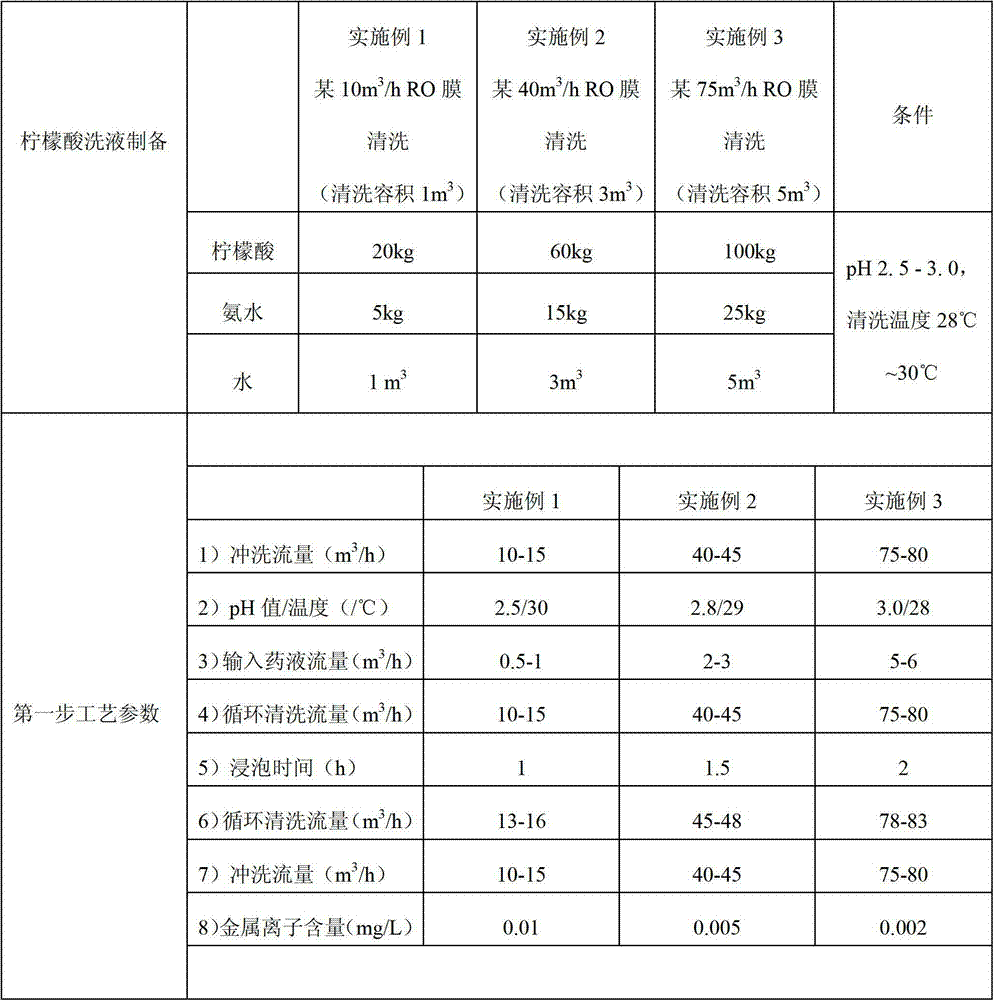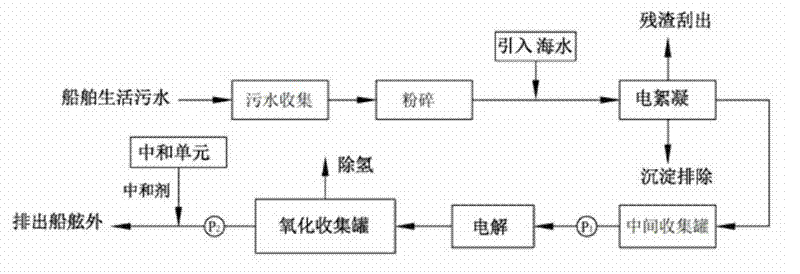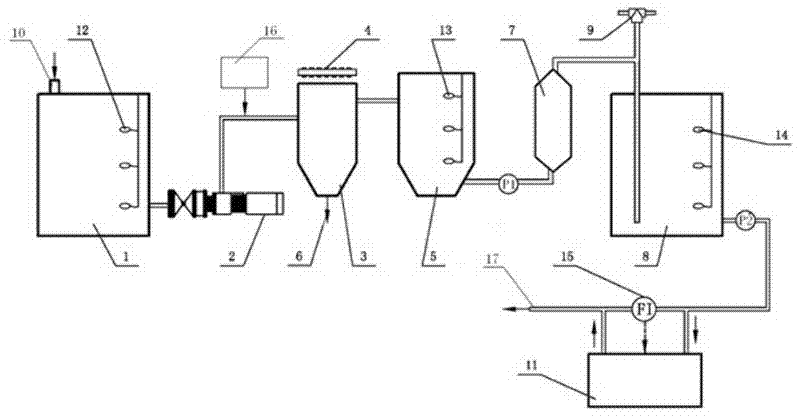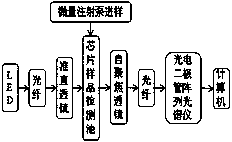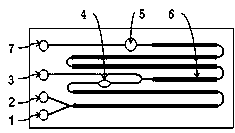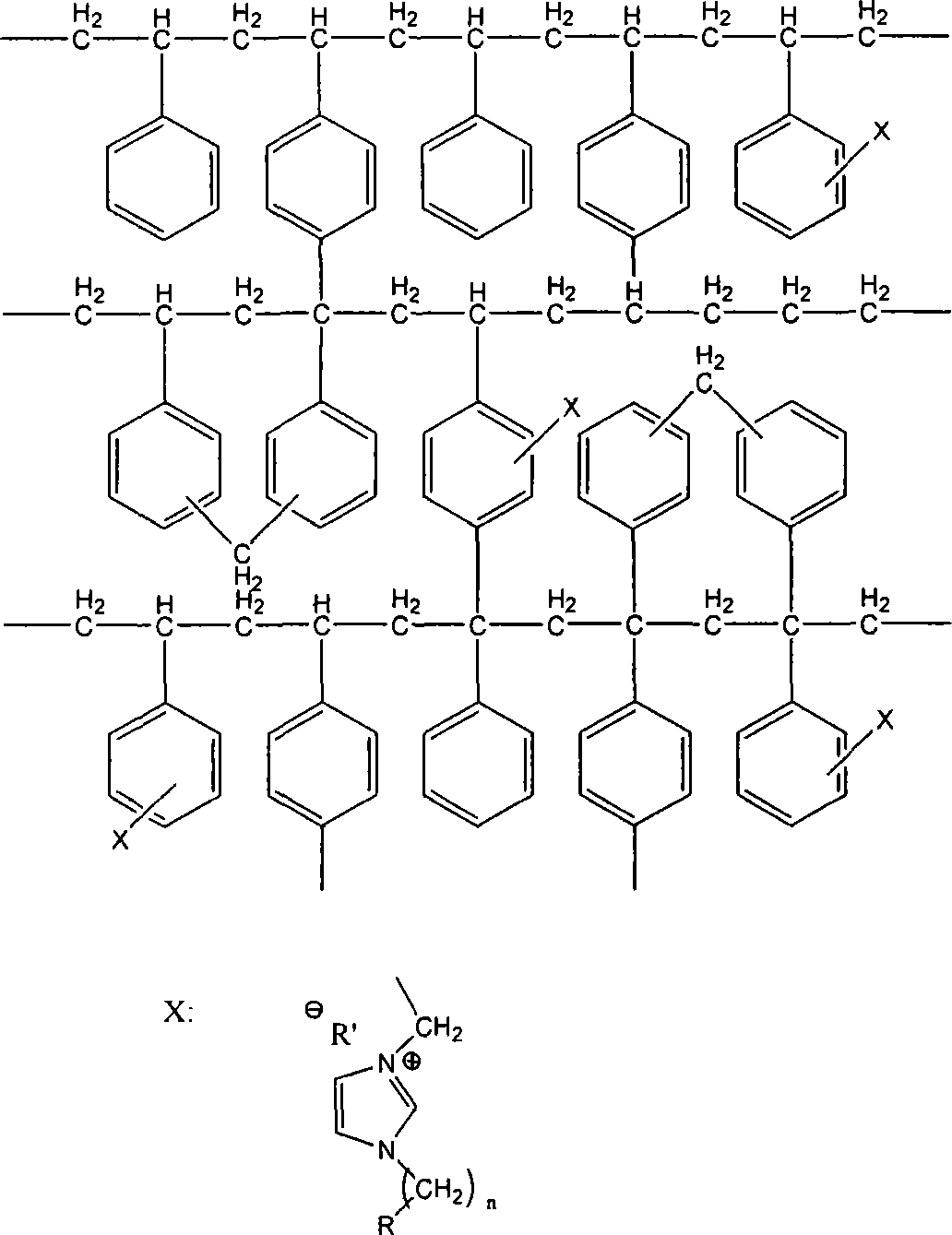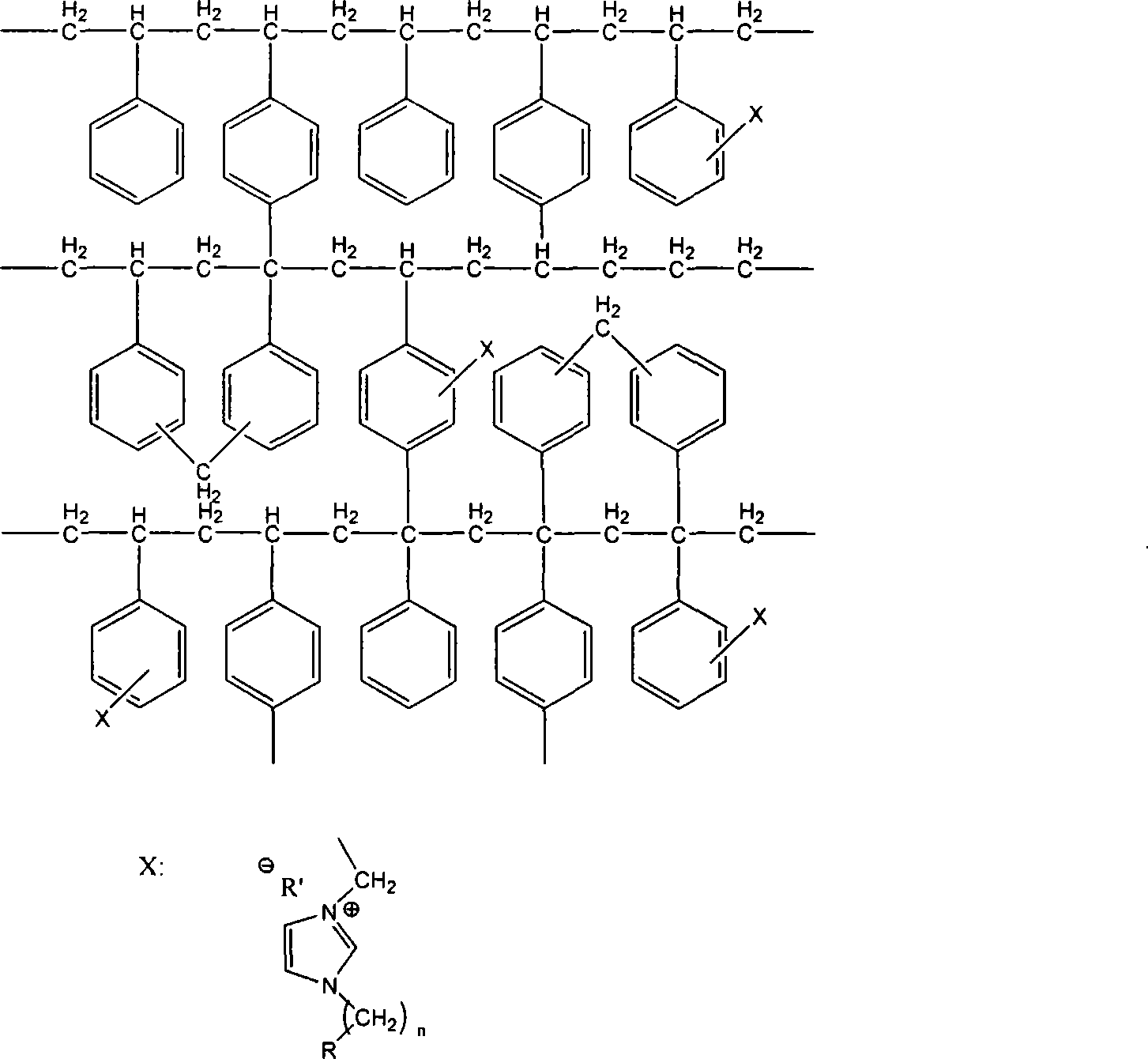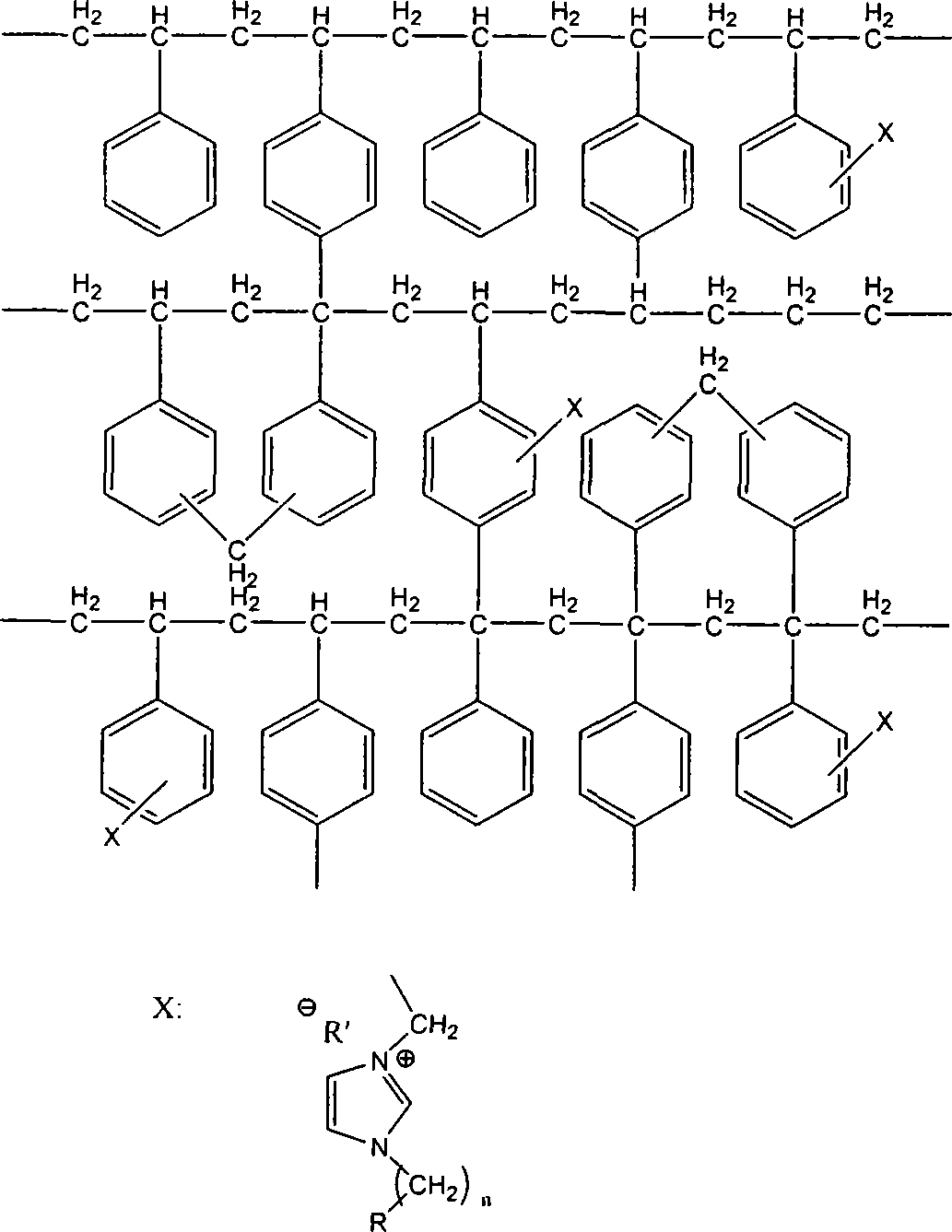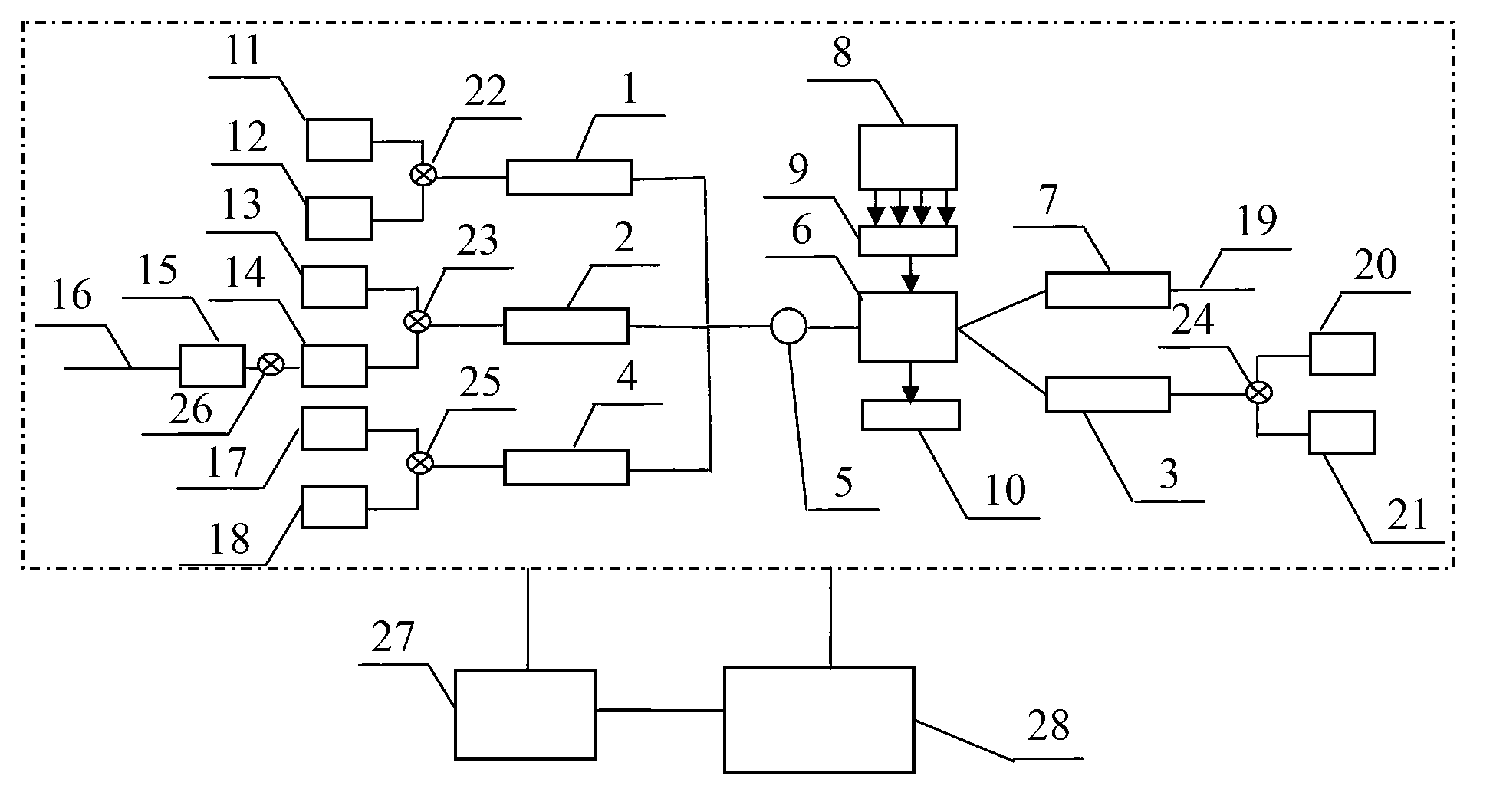Patents
Literature
1031 results about "Residual chlorine" patented technology
Efficacy Topic
Property
Owner
Technical Advancement
Application Domain
Technology Topic
Technology Field Word
Patent Country/Region
Patent Type
Patent Status
Application Year
Inventor
Systems and methods for remote utility metering and meter monitoring
ActiveUS20070284293A1Electric signal transmission systemsVolume/mass flow measurementTransceiverMechanical energy
A remote water meter monitoring system is provided. A mesh network-type transceiver unit is coupled to a water meter housing having a water counting mechanism inside to transmit water consumption information as well as other sensor information, such as backflow detection, water pressure, and water metrics (e.g., residual chlorine and temperature) to a central server system via a bridge device and a corresponding mesh network. Mechanical energy from the water flowing through the water meter housing is converted to electrical energy via an energy conversion unit. An electrically powered shut off valve is remote addressable via the transceiver unit.
Owner:MUELLER INT LLC
GPRS-based urban underground integrated pipe gallery water supply pipeline online monitoring system
InactiveCN105223890AImprove operational efficiencyImprove running qualityProgramme controlComputer controlAutomatic controlComputer-aided
The invention relates to a GPRS-based urban underground integrated pipe gallery water supply pipeline online monitoring system which mainly comprises four parts: pipeline monitoring sites, a GPRS data transmission network, a central control room, and an automatic control link. Monitoring data is transmitted to the central control room through a GPRS network. Pressure, flow, liquid level and residual chlorine data of a water supply pipeline is collected and processed, and the operation state of the water supply pipeline is analyzed based on the data transmitted back wirelessly. When the data of the pipeline is abnormal, alarm is raised, and meanwhile, computer-aided control software is started automatically to close a switching valve installed at a faulty site, and the operation state of the underground integrated pipe gallery water supply pipeline is detected, diagnosed and controlled online. When the pipeline fails, the position of the faulty site is located accurately by using a GIS and a GPS, and fault information is displayed on the display screen of a monitoring center. Therefore, the damage caused by accidents is reduced, and the operation efficiency and quality of the water supply pipe are improved.
Owner:遵义长征电力科技股份有限公司
Method for preparing cellulose nanocrystal/electrostatic spinning nanofiber filter film
InactiveCN102806021AImprove adsorption capacityPurify waterSemi-permeable membranesWater/sewage treatment bu osmosis/dialysisFiberPolymer science
The invention provides a method for preparing a cellulose nanocrystal / electrostatic spinning nanofiber filter film. The method is characterized in that the prepared cellulose nanocrystals of which the diameter is 3 to 10nm are coated on the surface of an electrostatic spinning nanofiber film to form a network structure so as to filter out impurities in raw water, intercept suspended solids, colloid, bacteria and the like in the water and effectively adsorb residual chlorine and heavy metal in the water; and therefore, the aim of purifying water quality can be fulfilled. Moreover, due to the adoption of a multi-layer compounded mode, the mechanical strength of the nano fiber film can be improved by the cellulose nanocrystals, so that the filter film has the advantages of simple structure, high mechanical strength, good filtering effect, low cost and the like, and has wide application prospect in the fields of drinking water purification, textile dyeing wastewater treatment, polyvinyl acetate (PVA) slurry recycling and the like.
Owner:DONGHUA UNIV
Systems and methods for generating power through the flow of water
ActiveUS20130113631A1Electric signal transmission systemsBatteries circuit arrangementsTransceiverMonitoring system
A remote water meter monitoring system is provided. A mesh network-type transceiver unit is coupled to a water meter housing having a water counting mechanism inside to transmit water consumption information as well as other sensor information, such as backflow detection, water pressure, and water metrics (e.g., residual chlorine and temperature) to a central server system via a bridge device and a corresponding mesh network. Mechanical energy from the water flowing through the water meter housing is converted to electrical energy via an energy conversion unit. An electrically powered shut off valve is remote addressable via the transceiver unit.
Owner:MUELLER INT LLC
Poly metal cluster water purifying material and its preparing method and use
ActiveCN1821108AEfficient removalQuick removalWater/sewage treatment by electrochemical methodsWater/sewage treatment using germicide/oligodynamic-processRare earthHigh activity
The present invention relates to polynary metal cluster as water purifying material and its preparation process and use. The water purifying material is prepared with porous material in 50-99 wt%, and two or more metals of Ag, Cu, Zn and RE in 1-50 wt%. The preparation process includes: selecting metal source; adding the metal source directly or after being compounded into water solution into the porous material to form combined body; and introducing reductant after roasting. Water to be purified is made to flow through the water purifying material or mixed with the water purifying material for purifying. The water purifying material has great specific surface area, high activity and high homogeneity, and may be used to eliminate water soluble heavy metal ion, micro organic pollutant, residual chlorine and sterilizing side product in high effect.
Owner:广州净易环保科技有限公司
Apparatus and method for treating ballast water
An apparatus and method for precisely controlling production, injection, and removal of disinfectants using electrolysis according to the flow rate of ballast water are provided, where the ballast water flows into or is discharged from the ballast tank to manage the ballast water or ships so that destruction or disruption of marine ecosystems can be prevented. An apparatus for treating ballast water and treatment method using the same are provided, the apparatus including: an electrolysis module for producing concentration-controlled sodium hypochlorite; a gas-liquid separator for separating hydrogen gas; a micro bubble generator for mixing and supplying reducing agents while reducing residual chlorine; a vortex generator for generating vortex; and a control system. The control system controls a salinometer, a flow rate meter, a residual chlorine meter, a seawater supply pump, flow rate control valves, an electrolysis module, a residual chlorine meter, a micro bubble generator, and an injection pump.
Owner:SAMSUNG HEAVY IND CO LTD
Water purification ceramic material and preparation method thereof
InactiveCN102219498ATo promote metabolismEfficient dischargeWater/sewage treatment by irradiationWater/sewage treatment by substance additionCalciteRare earth
The invention discloses a water purification ceramic material and a preparation method thereof, relating to a ceramic material. The invention provides a water purification ceramic material capable of releasing negative ions, radiating far infrared rays, resisting bacteria, removing residual chlorine, removing heavy metal and purifying water, and a preparation method thereof. Main components of the water purification ceramic material are tourmaline, copper oxide and iron trioxide. Auxiliary components of the water purification ceramic material are at least one of quartz, calcite, kaolin, feldspar, talc, zirconium oxide, titanium oxide, manganese dioxide, cobalt trioxide and the like. The preparation method comprises the following steps of: mixing the main components; then, mixing the mixedmain components with at least one of the auxiliary components; crushing; screening; ball-milling to obtain a mixture; then sintering to synthesize a spinel type copper oxygen body substrate material;crushing and ball-milling the spinel type copper oxygen body substrate material to form a substrate material; with at least one of copper salt, zinc salt, inorganic silver salt and rare earth metal as a metal source, dissolving the metal source in water to prepare a solution; adding the copper oxygen body substrate material to the solution and adsorbing to form a combination body; after sintering, introducing reducing gas; and forming to obtain the water purification ceramic material.
Owner:XIAMEN BAILIN WATER PURIFICATION TECH CO LTD
Method for treating highly concentrated ammonian wastewater with poor biodegradability by using a multiple-technique combination
InactiveCN101555077AShort processing cycleEasy to operateMultistage water/sewage treatmentWater/sewage treatment by neutralisationMagnesium saltEmission standard
The invention relates to a method for treating highly concentrated ammonian wastewater with poor biodegradability by using a multiple-technique combination, which belongs to the technical field of wastewater treatment. The method is characterized in that: the ammonian wastewater primarily enters a pH adjusting tank for adjusting the pH value to be 11-12.5 and enters a blow-off tower for blowing off with the gas-liquid ratio being 3000-4500, the blown-off wastewater enters a chemical precipitation tank, magnesium salts and phosphates are added according to the mol ratio of Mg : N : P being 1.4-1.7:1:1 for reacting with the wastewater to generate ammonium magnesium phosphate precipitate for removing ammonian, yielding water enters a break point chlorination tank, chlorine-containing oxide is added according to the weight ratio Cl / N being 9-12:1 of active chlorine and ammonian, the wastewater is transferred to a reducing tank after the reaction, reducing agent is added according to 1-1.1 times of theoretical mol value of the yielding water completely reacting with residual chlorine, and the wastewater can be directly discharged after the reaction. The treatment method has simple operation, high reaction speed and low wastewater treatment cost, and can lead ammonian to be recovered without secondary pollution to environment; and the yielding water can reach primary emission standard.
Owner:GUANGZHOU INST OF GEOCHEMISTRY - CHINESE ACAD OF SCI
Apparatus and method for reducing microorganisms on produce using chlorine dioxide gas
InactiveUS7571676B2Air-treating devicesFruit and vegetables preservationMicroorganismChlorine dioxide
This invention provides an apparatus and method for processing produce to reduce microorganisms thereon by treating the produce in a treatment chamber. The treatment chamber comprises a produce receiver disposed in the treatment chamber, a means for providing a gas stream comprising chlorine dioxide and a carrier gas into the treatment chamber, a chlorine dioxide sensor in communication with the treatment chamber, and a means for controlling the concentration of chlorine dioxide in the treatment chamber. The method comprises exposing the produce to an atmosphere comprising gaseous chlorine dioxide and a carrier gas in a treatment chamber and can comprise controlling the concentration of chlorine dioxide in the treatment chamber, moving the produce in the treatment chamber during exposure to the gaseous chlorine dioxide, spraying water to remove the gaseous chlorine dioxide, and purging the treatment chamber to remove any residual chlorine dioxide.
Owner:PURDUE RES FOUND INC
Integral multi-parameter water quality on-line monitoring device and control method thereof
The invention discloses an integral multi-parameter water quality on-line monitoring device which is provided with a residual chlorine-water temperature sensor, a turbidity sensor and a water level sensor, and signal lines thereof are respectively connected with a single-chip microcomputer; the device is characterized in that the single-chip microcomputer is also connected with a keyboard input circuit, an output display circuit, an EEROM memory, a sound-light alarm circuit and a communication circuit; the output display circuit displays the concentration value, the turbidity value, the water level height valve and the temperature valve of the residual chlorine in a circulating way; when a parameter exceeds the alarm value, the sound-light alarm circuit gives off sound-light alarm signals; the invention also expresses a control method which mainly comprises the following steps: system initiation, data acquisition, data processing and display, comparison and alarm; data acquisition adopts weighted average, data processing adopts moving average; and finally the invention can support the simultaneous on-line detection of a plurality of parameters, has the advantages of low cost, simple structure, convenient installation and debugging and high precision, and is very applicable to the water quality detection of small rural water plants.
Owner:重庆中珏正奇流量仪表有限公司 +1
Water treating device
InactiveUS7008529B2Safely and properly performingSludge treatmentElectrostatic separatorsElectrochemical decompositionResidual chlorine
Owner:SANYO ELECTRIC CO LTD
Remover for heavy metals in water
InactiveUS20050181931A1Stably retain the pH of waterWell mixedMolecular sieve catalystsOther chemical processesActivated carbonMagnesium ion
A removing agent for heavy metal ion in water which comprises synthetic zeolite, wherein 10 mol % or more of a total amount of exchangeable cation is substituted with magnesium ion and 60 mol % or more thereof is substituted with magnesium ion and calcium ion, and activated carbon at a weight ratio of 2:98 to 50:50 can effectively adsorb and remove heavy metal ions such as lead in water as well as residual chlorine and trihalomethane efficiently, particularly, in tap water, so as to allow delicious and healthful water without disturbing the balance between calcium ion and magnesium ion.
Owner:OSAKA GAS CHEM KK
Intelligent water purification system
ActiveCN105540901APrevent accidental water leakageAvoid financial lossMultistage water/sewage treatmentWater/sewage treatment using germicide/oligodynamic-processActivated carbonTotal dissolved solids
The invention discloses an intelligent water purification system which comprises a main control panel for controlling work of the intelligent water purification system, an ORP (oxidation reduction potential) detection unit for detecting concentration of residual chlorine in raw water and water passing through an activated carbon unit, a TDS (total dissolved solids) value detection unit for detecting water quality, a flow sensor unit for detecting water flow, and an automatic membrane flushing unit for controlling flushing of a PVDF (polyvinylidene fluoride) ultrafiltration membrane. An ORP detection and control module, a TDS value detection module, a flow detection module, an automatic membrane flushing module, a wireless communication module and a display screen control module are arranged on the main control panel. By means of the intelligent water purification system, information about the surplus of use of filter materials and water quality data can be displayed, so that users can conveniently know the situation of cleaning or replacement of the filter materials.
Owner:广州赛能直饮水有限公司
Production method of hypochlorous acid solution capable of being stably stored
The invention discloses a production method of a hypochlorous acid solution capable of being stably stored. The production method comprises the steps that raw water is subjected to activated carbon adsorbed filtration, ultrafiltration and counter osmosis to generate pure water; 1-500 ppm of stabilizing agents are added into a chlorine salt solution, and the ratio and parameter configuration of raw materials are controlled by an electrically operated valve; and after being mixed and stirred evenly in a buffer solution groove, the chlorine salt solution and the pure water enter an electrolytic cell of a potential water reactor, and the hypochlorous acid solution is generated by a chlorine salt solution electrolysis method, wherein the physicochemical indexes of the hypochlorous acid solution are as follows: the effective chlorine content is 20-200 mg / L, the pH value is 2.2-6.5, the oxidation reduction potential is greater than or equal to 1000 mV, and the residual chlorine ions are smaller than 1000 mg / L. The stable hypochlorous acid solution is produced by the chlorine salt solution electrolysis method, the trace of stabilizing agents are added in the chlorine salt solution, and the hypochlorous acid solution is produced through electrolysis in an electrolytic reactor and can be stably stored for a long time under the airtight and dark conditions.
Owner:华宇生物医药(北京)有限公司
Method of treating ballast water of ship
InactiveUS20100072144A1Water treatment parameter controlSelf-bailing equipments/scuppersBiological bodyHypochlorite
A method of treating a ballast water for sterilizing bacteria, microorganisms or organisms in the ballast water in a hold or ballast tank of a ship, has the steps of: sterilizing the bacteria, microorganisms or organisms by adjusting a residual chlorine concentration in the ballast water to 1 mass ppm or more and 1000 mass ppm or less with a hypochlorite, and removing the residual chlorine in the ballast water with a sulfite.
Owner:TGCORP +2
Device and method for monitoring water purifier
ActiveCN104941305AReal Water Production EfficacyAvoid wastingReverse osmosisFiltration separationResidual chlorineTerminal unit
The invention discloses a device for monitoring a water purifier. The device comprises a monitoring device, a processor and a terminal unit, wherein a flow speed sensor and a residual chlorine probe are used for monitoring tap water and the water purifier in real time, and water speed information and residual chlorine information are acquired and transmitted; the processor is used for receiving raw water water-speed information at a water inlet of the water purifier, which is acquired by the flow speed sensor in the monitoring device, and the residual chlorine information acquired by the residual chlorine probe, analyzing and comparing the raw water water-speed information with pre-stored standard raw water water-speed information as well comparing the residual chlorine information with the pre-stored standard residual chlorine information, and calling and transmitting pre-stored command information matched with a comparing analysis result according to the comparing analysis result; and the terminal unit is used for receiving and displaying command information transmitted by the processor. The device for monitoring the water purifier has the beneficial effects that a real-time working state and real water production efficiency of each filter element of the water purifier can be relatively accurately reflected, so that a user of the domestic water purifier can sufficiently and effectively utilize the filter element; and the device is reliable and convenient to use and can be easily popularized and applied in the market.
Owner:BEIJING DIWINET TECH CO LTD
Electrochemical water treatment device and intelligent control system for circulating water system
ActiveCN104058509AAchieve softeningRealize the sterilization functionProgramme controlComputer controlVoltage sensorResidual chlorine
The invention discloses an electrochemical water treatment device and an intelligent control system for a circulating water system. The electrochemical water treatment device is characterized by being capable of being used as a bypass pipeline for treating quality of circulating water, and comprising an electrochemical treatment device (6) and an intelligent control system (5), wherein feedback data of a current and voltage sensor (26) in the electrochemical treatment device (6) and feedback data of a residual chlorine sensor (7) in the circulating water system are used as input information of the intelligent control system (5), so that an automatic descaling and cleaning step and an intelligent operation parameter regulation of the electrochemical treatment device (6) are realized.
Owner:CNOOC TIANJIN CHEM RES & DESIGN INST +1
Movable water quality detection device
ActiveCN108426860AAvoid enteringAvoid cloggingMaterial analysis by observing effect on chemical indicatorWithdrawing sample devicesIlluminanceElectric machinery
The invention discloses a movable water quality detection device. The device comprises a casing, wherein an anti-blocking device is fixedly connected with the lower end of a water pumping pipe; a motor is fixedly connected with the top end of the inner wall of a protective casing; a rotating shaft is rotationally connected with the lower end of the motor; a brush is fixedly connected with the lower end of the rotating shaft; a support table is arranged on the right side of the bottom end in a cavity of the casing; a detection box is fixedly connected with the left end of the upper surface of the support table; a light-emitting component is fixedly connected with the lower end of the left side of the outer wall of the detection box; an illuminance detection instrument is arranged in the position, corresponding to the light-emitting component, of the lower end of the right side of the outer wall of the detection box; a residual chlorine reagent box is arranged on the right side of the outer wall of the detection box; a treatment box is communicated with the lower end of the detection box through a drain pipe; a push rod is fixedly connected with the right side of the outer wall of the casing. The invention relates to the technical field of water quality detection devices. The movable water quality detection device is movable and anti-blocking, has high detection accuracy and realizes automatic sewage treatment, and maintenance cost is reduced.
Owner:海宁人民机械有限公司
Water treating device
InactiveUS20040149663A1Reduce system costLow costElectrostatic separatorsSludge treatmentReclaimed waterElectrochemical decomposition
The present invention provides a water treating device, which comprises: a water container for containing water to be treated; an electrolyzing chamber for sterilizing the to-be-treated water by way of electrochemical decomposition through energization of an electrode set consisting of at least two electrode plates; a water treatment line through which the to-be-treated water is introduced into the electrolyzing chamber from the water container and fed back into the water container after the sterilization of the water in the electrolyzing chamber; a residual chlorine sensor for measuring the residual chlorine concentration of the to-be-treated water before the water is introduced into the electrolyzing chamber; and control means for controlling the amount of the to-be-treated water to be electrochemically decomposed in the electrolyzing chamber on the basis of the residual chlorine concentration measured by the residual chlorine sensor to keep the residual chlorine concentration of the water to be fed back into the water container within a predetermined range; wherein a bypass line is provided which is branched from the water treatment line at a position upstream of the electrolyzing chamber for sampling the to-be-treated water, introducing the sampled to-be-treated water into the residual chlorine sensor for the measurement of the residual chlorine concentration thereof, and discharging the sampled to-be-treated water into the electrolyzing chamber after the measurement. With this arrangement, the to-be-treated water subjected to the measurement of the residual chlorine concentration in the bypass line is returned into the electrolyzing chamber, so that no waste water is produced. Further, the to-be-treated water returned into the electrolyzing chamber is sterilized in the electrolyzing chamber, and then fed back into the water container. Therefore, water yet to be sterilized is not fed back into the water container.
Owner:SANYO ELECTRIC CO LTD
Chlorine-resistant composite nanofiltration membrane and preparation method thereof
InactiveCN107029558AImprove chlorine resistanceAddresses the limitation that it cannot be used in environments with more oxidizing mediaSemi-permeable membranesMembranesPolyamideMelamine
The invention belongs to the technical field of membrane separation, and provides a chlorine-resistant composite nanofiltration membrane and a preparation method thereof. The chlorine-resistant composite nanofiltration membrane has charge performance, and comprises a separation function layer and a support layer, wherein the support player is positioned under the separation function layer. The chlorine-resistant composite nanofiltration membrane prepared by the preparation method provided by the invention can be a flat membrane and can also be a hollow fiber membrane. The chlorine-resistant composite nanofiltration membrane monomer has melamine of a triazine ring structure and is subjected to crosslinking treatment, so that the composite membrane has significantly higher chlorine resistance than a commercial polyamide composite membrane, the limitation that the current commercial nanofiltration membrane cannot be used in the environment including residual chlorine is broken, and thus complexity of pretreatment can be greatly reduced, and the application environment is wide.
Owner:DALIAN UNIV OF TECH
Method for determining ammonia nitrogen content in water through Nessler reagent spectrophotometric method
InactiveCN102721656AAvoid interferenceImprove accuracyPreparing sample for investigationColor/spectral properties measurementsRelative standard deviationShake up
The invention discloses a method for determining ammonia nitrogen content in water through a Nessler reagent spectrophotometric method. The method comprises the following steps: (1) taking an original water sample to be analyzed; (2) performing pretreatment on the original water sample; (3) taking the water sample after pretreatment, loading into a colorimetric tube, shaking up, then adding a Nessler reagent into the colorimetric tube, further shaking up, placing for a certain period of time and adopting a spectrophotometer to test the absorbency of the water sample; (4) adopting distilled water to do a blank test to get blank absorbency; and (5) enabling the absorbency measured in the step (3) to deduct the blank absorbency measured in the step (4) to get correction absorbency, drawing a standard curve and calculating the ammonia nitrogen content in the water. The method has the benefits of fast determining the ammonia nitrogen content in the water, preventing suspended matters and residual chlorine from interfering with the detection result through the pretreatment of the original water sample, and effectively improving the accuracy of the detection result; and furthermore, the method is good in repeatability and less in relative standard deviation.
Owner:SUZHOU GUOHUAN ENVIRONMENT DETECTION
Novel water treatment method for boiler feedwater
ActiveCN102344215AAvoid breedingDecreased water conductivityGeneral water supply conservationMultistage water/sewage treatmentChlorine dioxideUltrafiltration
A novel water treatment method for boiler feedwater of the invention comprises the following steps: sterilization, that is adding liquid chlorine, sodium hypochlorite or stabilized chlorine dioxide into a raw water tank, controlling the residual chlorine amount in water to be 0.2-0.5 mg / L; filtration, that is adding a polyaluminium chloride coagulant before a multimedium filter with an amount of 10-20 mg / L, controlling the water turbidity of the ultrafiltration feedwater to be not more than 0.1 NTU and the SDI to be not more than 3; adding a reducing agent of sodium bisulfite before ultrafiltration with an adding amount of 3-5 mg / L; reverse osmosis, that is performing desalination treatment by a reverse osmosis membrane device, continuously adding a PTP-0100 scale inhibitor before a security filter with an adding amount of 3-5 mg / L; continuously adding a Micro Treat BIO bactericide with an adding amount of 3-5 mg / L; additionally adding cleaning agents of Dimamite and High Flux once a month with an amount of 3-5% of the water amount to be produced; desalination, that is performing desalination by an electrical desalination system (EDI); deoxygenation, that is performing deoxygenation by a vacuum deoxygenator, adding 10-20 microgram / L of deoxidants, controlling the agent residual amount to be 5-20 microgram / L, adding a corrosion-inhibiting pH regulator to control the pH value to be 8.8-9.3.
Owner:XINJIANG DELAND
Reverse osmosis membrane chemical cleaning method
InactiveCN102814123AIncrease profitExtended service lifeSemi-permeable membranesWater/sewage treatment bu osmosis/dialysisInorganic saltsPhysical chemistry
The invention discloses a reverse osmosis membrane chemical cleaning method which performs chemical cleaning on a polluted reverse osmosis membrane by a combination of acid cleaning and chlorine cleaning. The method comprises the following steps: carrying out acid cleaning on the reverse osmosis membrane by using citric acid to remove inorganic salt scales and metallic ions on the membrane surface; and carrying out chlorine cleaning technique to perform deeper cleaning on the reverse osmosis membrane, wherein the chlorine cleaning not only can remove biological sewage, but also can have favorable sterilizing effect. The chlorine cleaning process is implemented by carrying out chemical cleaning on the membrane by using an oxydol solution under the condition of certain residual chlorine concentration. Repeated field reverse osmosis polluted membrane cleaning by combining acid cleaning and chlorine cleaning proves that the technique can be popularized and implemented and has especially obvious effect on the reverse osmosis system with reduced membrane flux due to biological sewage.
Owner:西安兴仪启动发电试运有限公司
Method for treating domestic sewage of compound ship
ActiveCN102515398ANo need to addNo need to saveAuxillariesMultistage water/sewage treatmentEscherichia coliElectricity
The invention relates to a method for treating domestic sewage of a compound ship. The method is characterized by comprising the following steps: crushing: crushing bigger solid grains in the domestic sewage collected in a collecting jar by using a crushing pump; introducing seawater: mixing the seawater with the sewage at a certain ratio; electrically flocculating: introducing the mixed sewage which is formed after mixing the seawater with the sewage into an electric flocculating device for performing the electric flocculating treatment; electrolyzing: utilizing a water pump to pump the sewage into an electrolytic bath for electrolyzing, oxidizing the sewage in the electrolytic bath, and meanwhile, generating sodium hypochlorite and killing escherichia coli; continuing oxidizing: continuing oxidizing and disinfecting the electrolyzed sewage in an oxidizing collecting jar, and discharging hydrogen generated after electrolyzing; and neutralizing: introducing the sewage into a neutralizing unit, neutralizing residual chlorine, and after reaching the standard, discharging the treated qualified sewage out of a ship board by using a discharging pump. The method provided by the invention has the advantages of high degree of automation, small volume, strong water-quality adaptation, simpleness and convenience in operation and maintenance, safety, effectiveness, and the like. The method is suitable for the ships in various types.
Owner:SUNRUI MARINE ENVIRONMENT ENG
Method for detecting residual chlorine
InactiveCN103616373ASimple residual chlorine detection methodRapid residual chlorine detection methodMaterial analysis by observing effect on chemical indicatorColor/spectral properties measurementsChromogenicReagent
The invention discloses a method for detecting residual chlorine. According to the method, microscale syringe pump is taken as a driving effect force, a micro fluidic chip is taken as a carrier, a chromogenic mixing reaction of a residual chlorine sample and a chromogenic reagent DPD is carried out, then an assembled optics detection system is used for detecting the content of the residual chlorine in the sample. The micro fluidic chip used in the detection method has a micro block array unit for promoting the residual chlorine sample and DPD chromogenic reagent reaction, and a spectrophotometry method is used for detecting the residual chlorine content in the sample in a sample detection pool. The invention provides the residual chlorine sample determination method with simple, rapid and effective characteristics.
Owner:SUZHOU WENHAO MICROFLUIDIC TECH CO LTD +1
Anion ceramic ball and preparation method thereof
The invention discloses an anion ceramic ball and a preparation method of the anion ceramic ball. The anion ceramic ball is prepared from the following raw materials in parts by weight: 50-70 parts of Gui gemstone, 30-50 parts of elbaite, 25-45 parts of basalt, 10-15 parts of potash feldspar, 8-16 parts of zeolite, 7-13 parts of germanite, 10-15 parts of kaolin clay, 5-10 parts of halloysite, 12-18 parts of bryozoatum, 6-12 parts of shell powder, 15-20 parts of cobblestone and 10-15 parts of pearl powder. The anion ceramic ball disclosed by the invention is stable in ion generation performance and durable in effectiveness, can be widely applied to the treatment of drinking water, enables water molecular groups to become small, can be used for increasing the dissolving capacity and penetrability of water and reducing the oxidation-reduction potential of water, ensures that the water quality is weakly alkaline, and is helpful for regulating the acidity and alkalinity of a human body; the anion ceramic ball can be used for dissolving out micro-elements such as calcium, magnesium, sodium and potassium and various mineral substances required by the human body, and also has the functions of removing peculiar smell and residual chlorine of water and removing harmful metal substances in water.
Owner:FUJIAN QUANZHOU LONGPENG GROUP
Method of increasing hydrophilicity of complex function adsorption resin and reinforcing adsorbability of the complex function adsorption resin
InactiveCN101033305AImprove hydrophilicityImprove adsorption capacityOther chemical processesAlkali metal oxides/hydroxidesCross-linkPolymer science
The invention discloses a method for improving a composite resin adsorption function and strengthening its hydrophilic properties of adsorption. The steps include: (A) it bulges the chlorine-ball in the nitrobenzene or dichloroethane, and adds the catalyst, and accesses to the oxidant, and gradually warms up to 20 ~ 120deg.C, then it determines the response end by controlling the residual chlorine content of resin to achieve the high crosslinked polystyrene resin. (B) After the reaction, it pumps out the liquor of reaction, and washes the oxygenated high crosslinked polystyrene resin with organic solvent, and then it directly adds a functional reagent to further react with the residue chloromethyl on internal and external surface of resin to achieve the oxygen high crosslinked polystyrene resin. In which, the amount of the functional reagent is 0.5 to 3 times of the high amount of cross-linked polystyrene resin.
Owner:NANJING UNIV
Imidazolyl modified complex functional high-crosslinked adsorption resin and preparation method thereof
InactiveCN101225176ASignificant static electricitySignificant coordinationOther chemical processesDivinylbenzeneIon exchange
The invention discloses an imidazolyl-modified multifunctional high-crosslinked adsorption resin and a preparation method of the multifunctional high-crosslinked adsorption resin, the building unit of which is represented by the right formula. The preparation method is that: firstly, chloromethyl polystyrene resin is swelled in an organic solvent and catalyst is added into the solution, the temperature of the solution is increased to 20 to 120 degrees gradually, when the content of the residual chlorine in the resin is 4 to 15 percent, the reaction reaches the reaction endpoint, and then the polystyrene-divinylbenzene adsorption resin is obtained; secondly, after the reaction, the reaction mother liquor is pumped out totally, the residual solvent and the residual catalyst are washed away by water or an organic solvent; thirdly, the production is swelled, functionalized imidazole reagent are added into the solution and takes a further reaction with the residual chloromethyl on the inner and the external surfaces of the resin. The preparation method for the imidazolyl-modified multifunctional high-crosslinked adsorption resin has the advantages that: the resin has the double functions of adsorption and ion exchange (coordination); the multifunctional high-crosslinked adsorption resin with the imidazolyl by adopting functional imidazole modification has the hydrophilic imidazole function group and the hydrophobic styrene frame, so the resin has favorable affinity to protein and other biological reagents.
Owner:NANJING UNIV
Device and method for online measurement of dynamic chlorine demand of conditioning water
ActiveCN102914510ARealize regulationReduce consumptionMaterial analysis by observing effect on chemical indicatorColor/spectral properties measurementsLinear regressionShort terms
The invention belongs to the field of water supply treatment and disinfection, and particularly relates to a device and a method for online measurement of dynamic chlorine demand of conditioning water. The technical scheme disclosed by the invention is that the existing four-way stay spectrometer is improved, and an online control unit is added to form an online stay spectrum device. The method comprises the following steps: accurately measuring the concentration of residual effective chlorine of the chlorine and the conditioning water after a period of time of reaction by the online stay spectrum device on line; dividing reaction of the chlorine and the conditioning water into rapid reaction and slow reaction by linear regression fitting of a logarithmic value and reaction time of the residual effective chlorine; building a calculation formula of short-term chlorine demand on the conditioning water at the rapid reaction stage and long-term chlorine demand on the conditioning water at the slow reaction stage; and calculating the dynamic chlorine demand of the conditioning water according to the demand on a residual chlorine value at the tail end of a pipe network and the stay time, thus the pre-stage control of the fed chlorine can be achieved; the economical efficiency and the security of the fed chlorine are achieved, and water supply security is effectively guaranteed.
Owner:RES CENT FOR ECO ENVIRONMENTAL SCI THE CHINESE ACAD OF SCI
Method for controlling generation quantity of bromic acid radicle in treating procedure for oxidizing drinking water by ozone
InactiveCN101050036AGeneration of controlInhibitionMultistage water/sewage treatmentWater/sewage treatment using germicide/oligodynamic-processCatalytic oxidationWater quality
This invention relates to a method for controlling the quantity of bromate ions produced during treatment of ozone-oxidized drinking water. The method solves the problems of consuming residual chlorine, eroding pipes and meshes, and generating toxic substances by present techniques. The method controls the quantity of bromate ions by introducing cerium oxide, transition metal oxide-doped cerium oxide or supported cerium oxide catalyst for catalytic oxidation. The quantity of produced bromate ions is decreased by 80% when the bromic ions concentration is 100-200 mu.g / L and the consumption of cerium oxide is 100 mg / L. The method has a high efficiency in inhibiting the generation of bromate ions, and the yield of byproducts is 20-30% lower than that produced by pure ozone oxidation.
Owner:HARBIN INST OF TECH
Features
- R&D
- Intellectual Property
- Life Sciences
- Materials
- Tech Scout
Why Patsnap Eureka
- Unparalleled Data Quality
- Higher Quality Content
- 60% Fewer Hallucinations
Social media
Patsnap Eureka Blog
Learn More Browse by: Latest US Patents, China's latest patents, Technical Efficacy Thesaurus, Application Domain, Technology Topic, Popular Technical Reports.
© 2025 PatSnap. All rights reserved.Legal|Privacy policy|Modern Slavery Act Transparency Statement|Sitemap|About US| Contact US: help@patsnap.com
